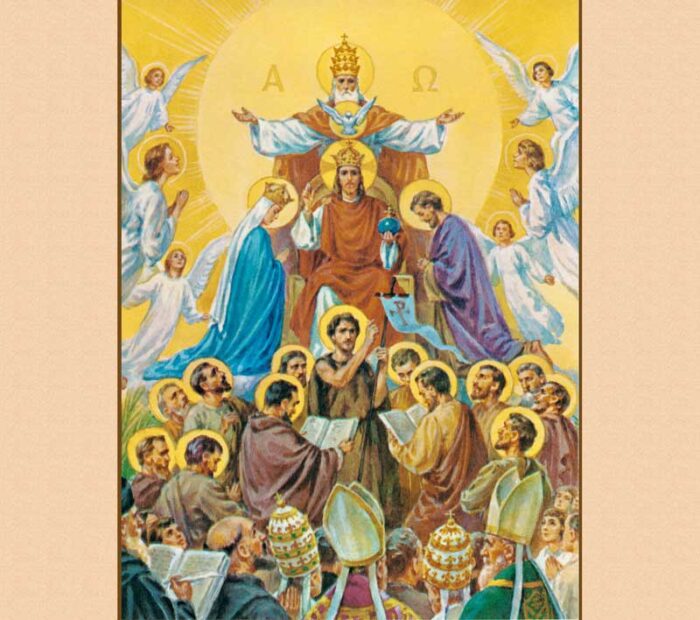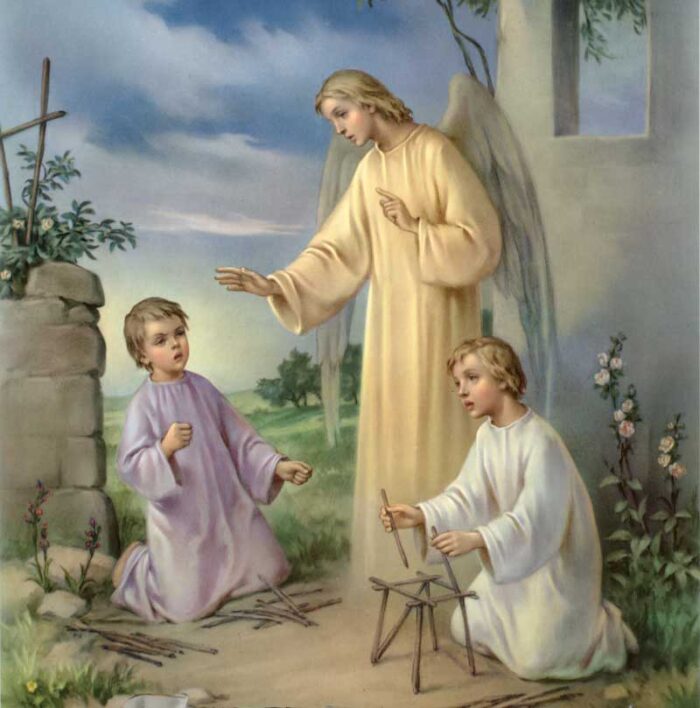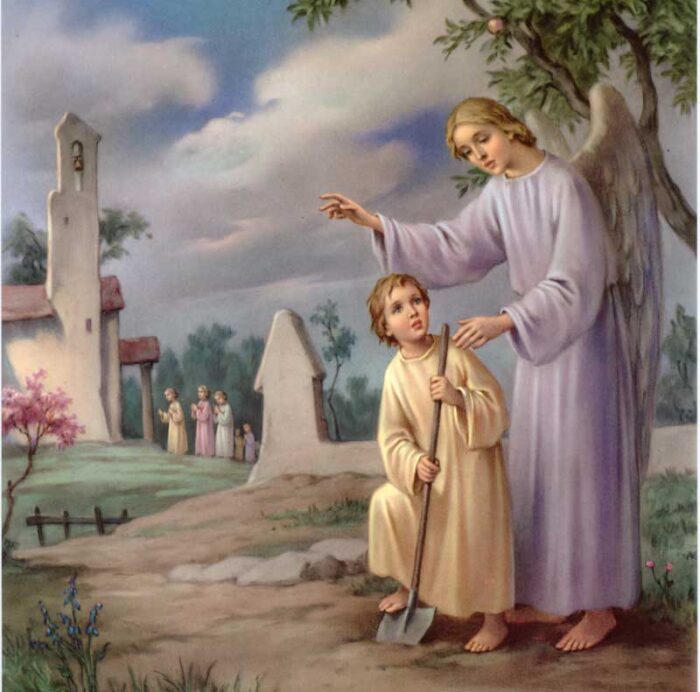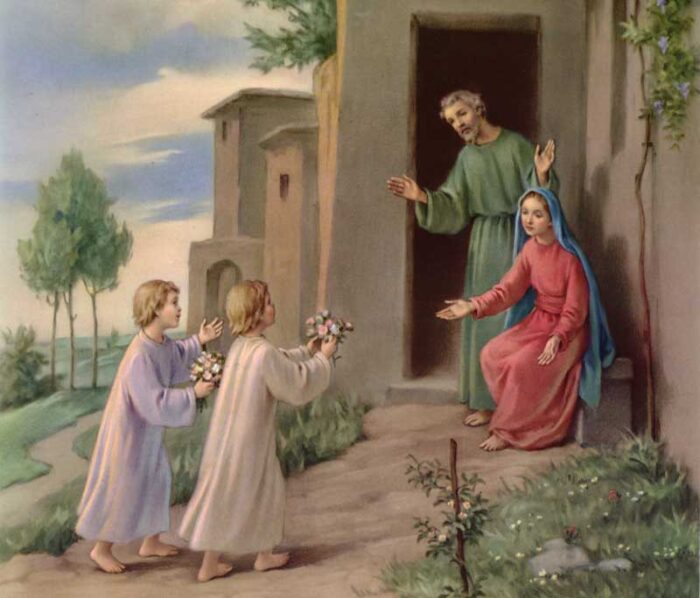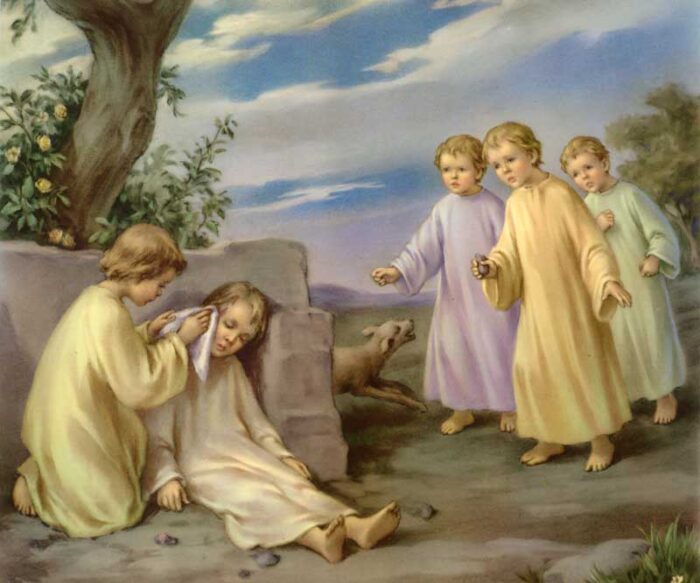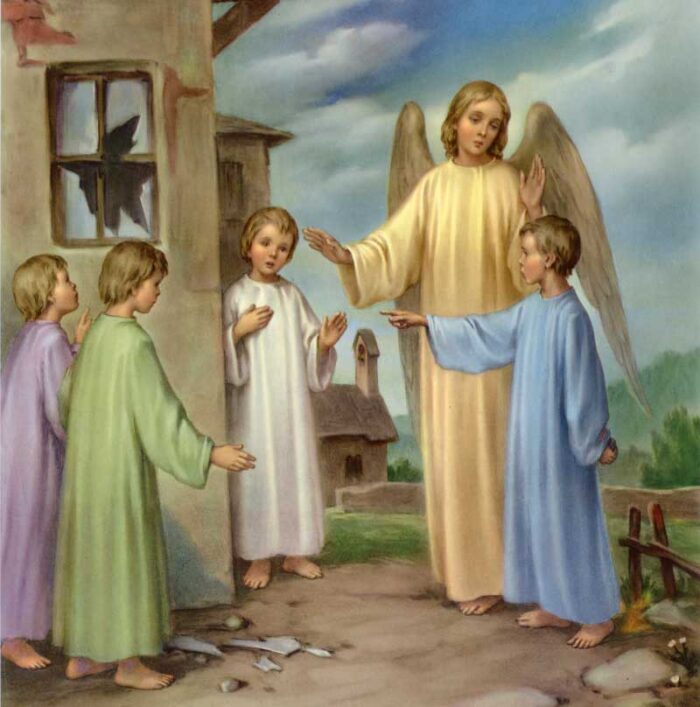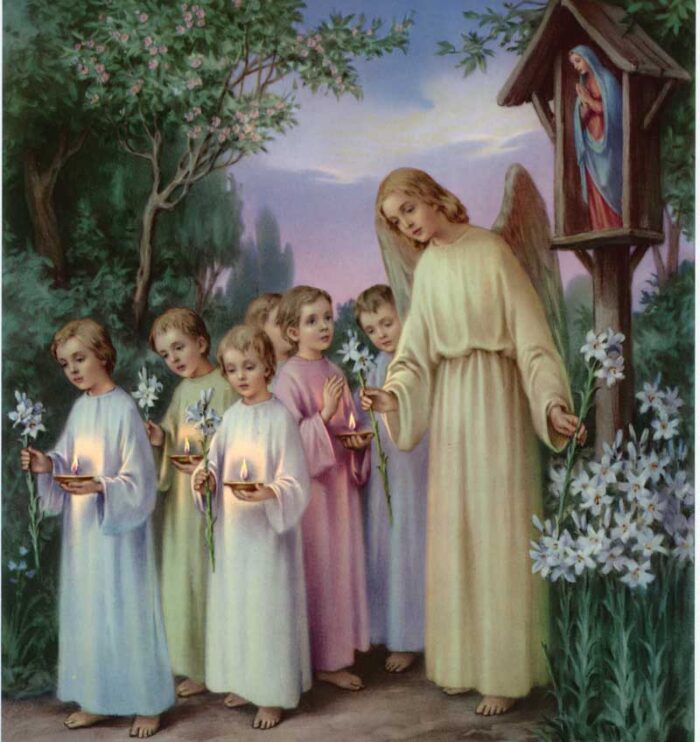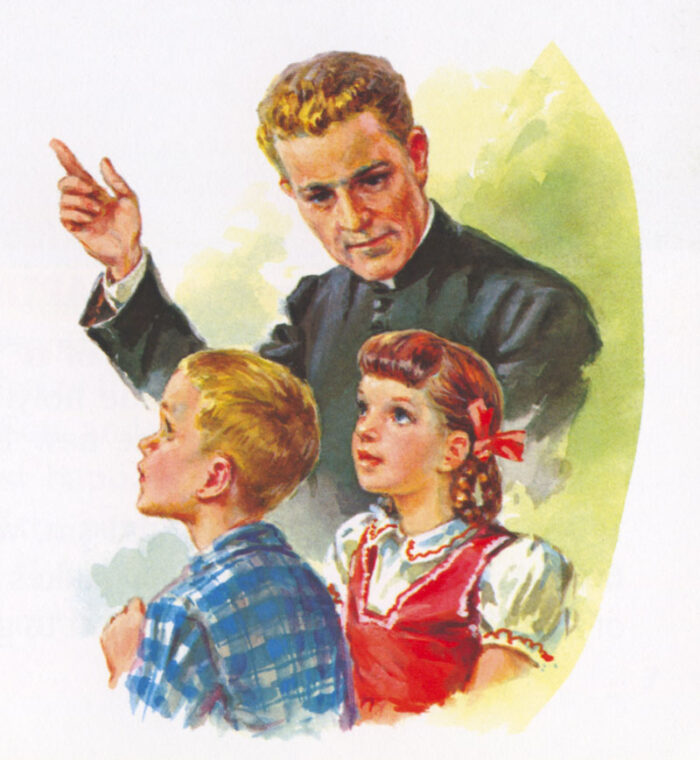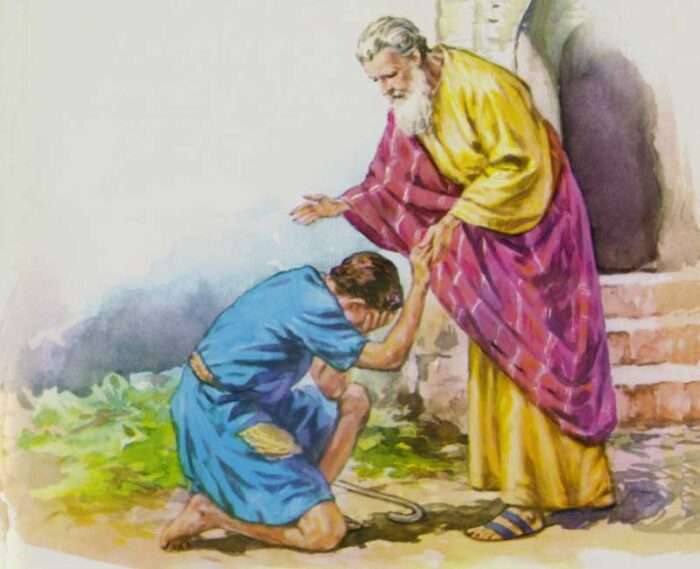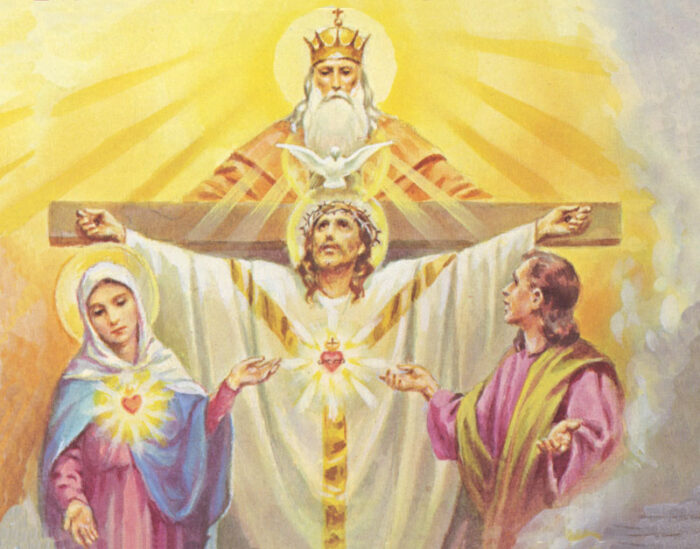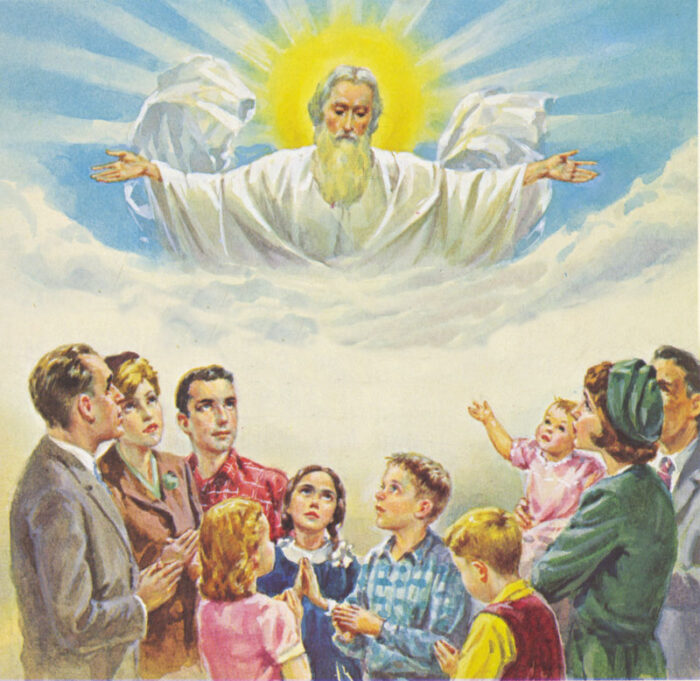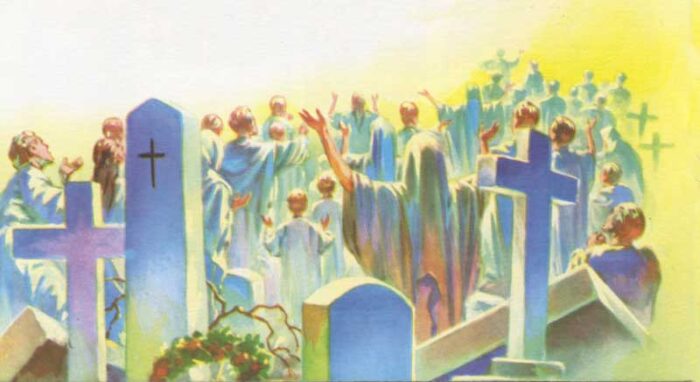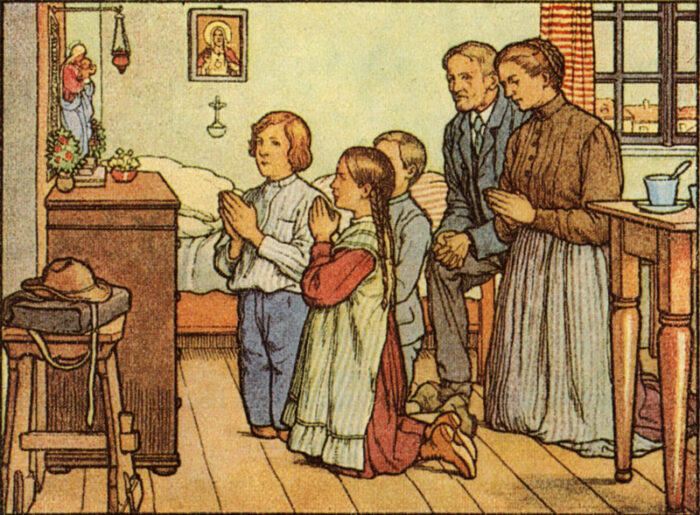Catechism Lessons
according to the Tradition of the Gospel and the Church
“Go, teach all nations...teaching them to observe all that I have commanded you.”
Holy Gospel of Jesus Christ,
St. Matthew 28:19-20
Lessons 37 to 40 ⇓
Lessons 41 to 44 ⇓
Lessons 45 to 48 ⇓
Lessons 49 to 50 ⇓
Lesson 37: Devotion to the Saints

418. — Does the first Commandment forbid us to honor the Saints?
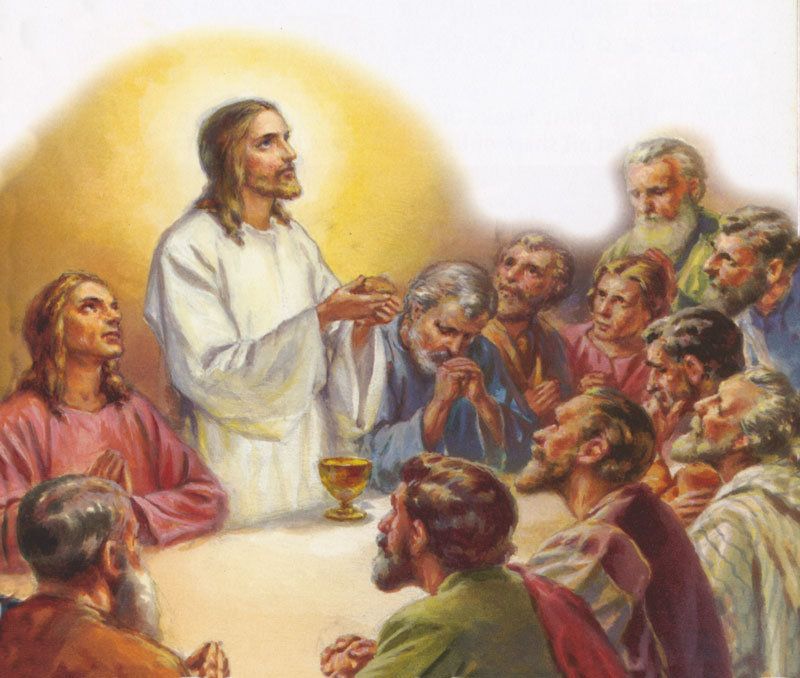
419. — Does the first Commandment forbid us to invoke the Saints to request their help and their intercession?
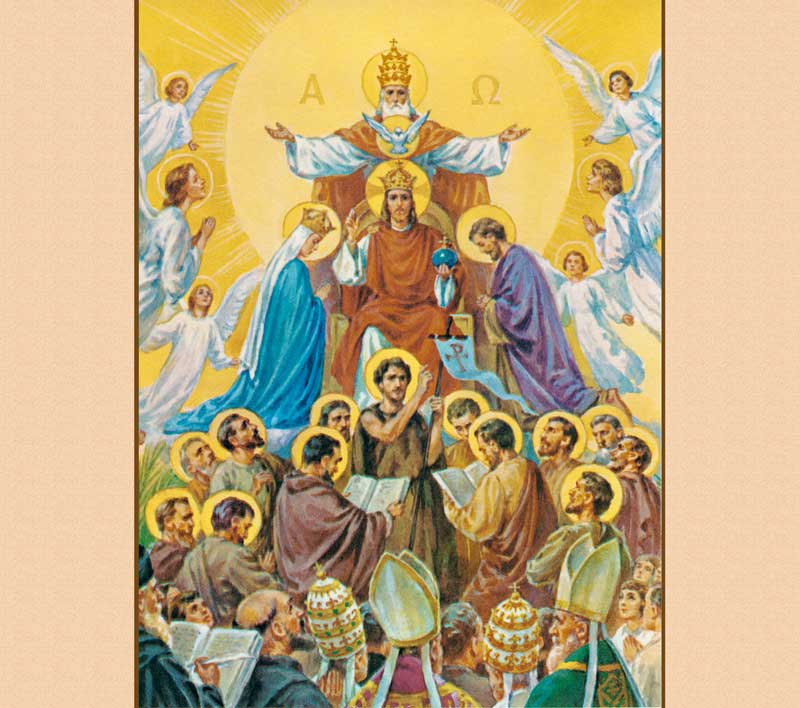
420. — How do we know that the Saints hear us?
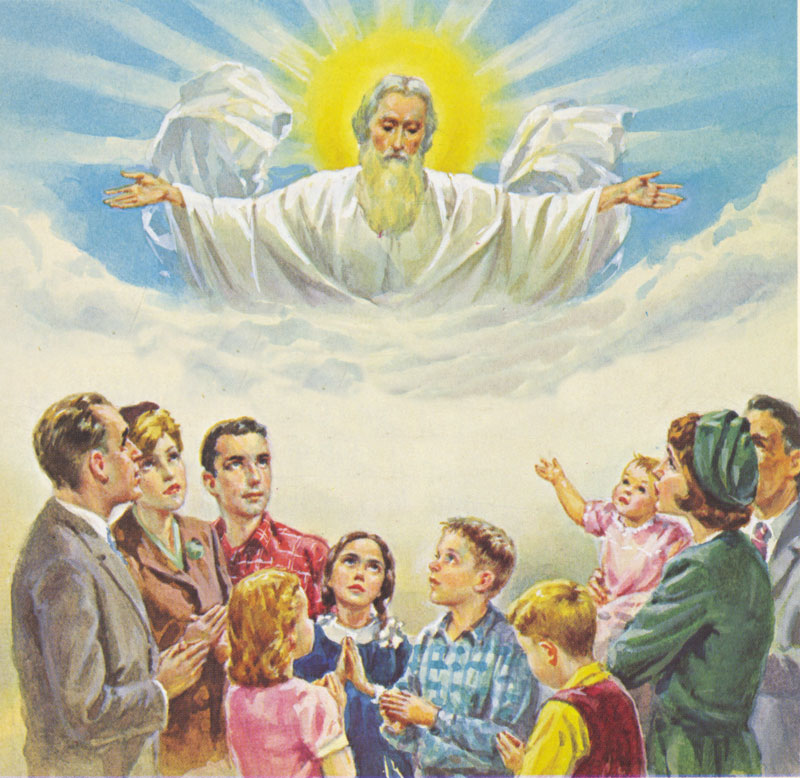
421. — Why do we believe that the Saints help us?

422. — What do we mean by relics of the Saints?
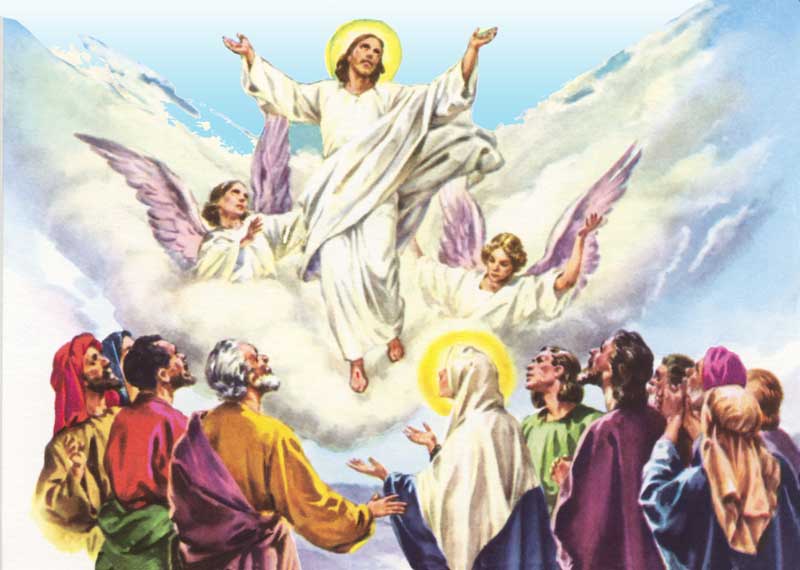
423. — Does the first Commandment forbid us to honor the relics of the Saints?
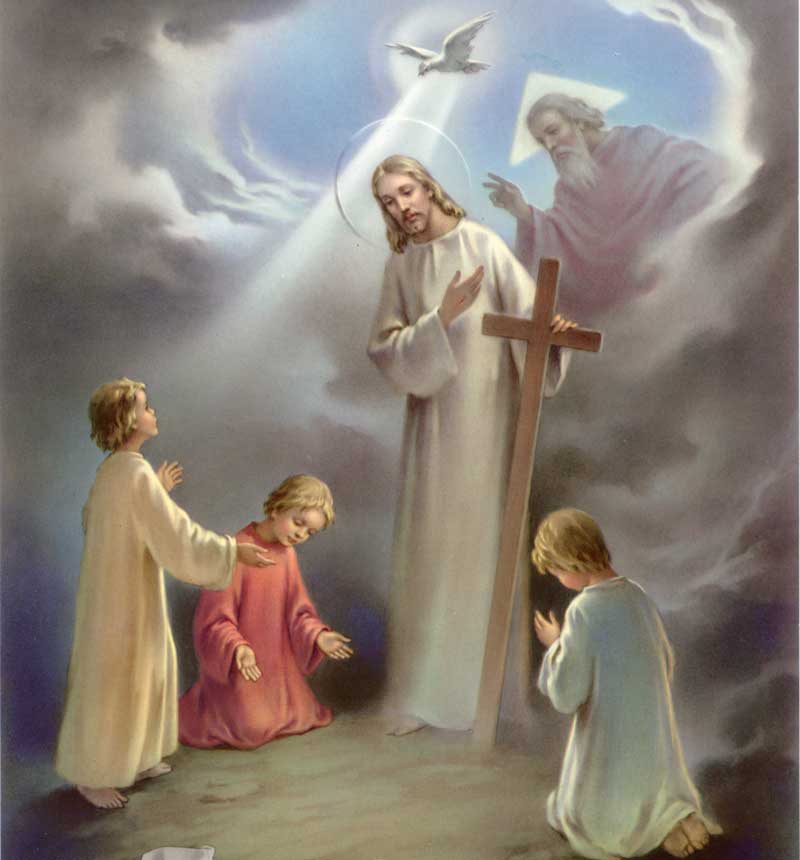
424. — Does the first Commandment forbid the making of images?

425. — Is it good to show respect for the images of Jesus Christ and the Saints?
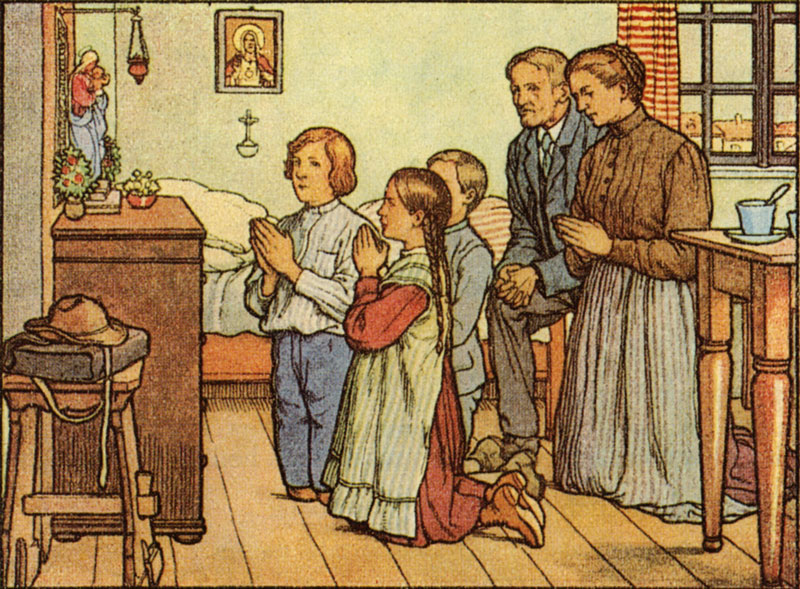
426. — Why do we pray before the crucifix, before the images and relics of the Saints?
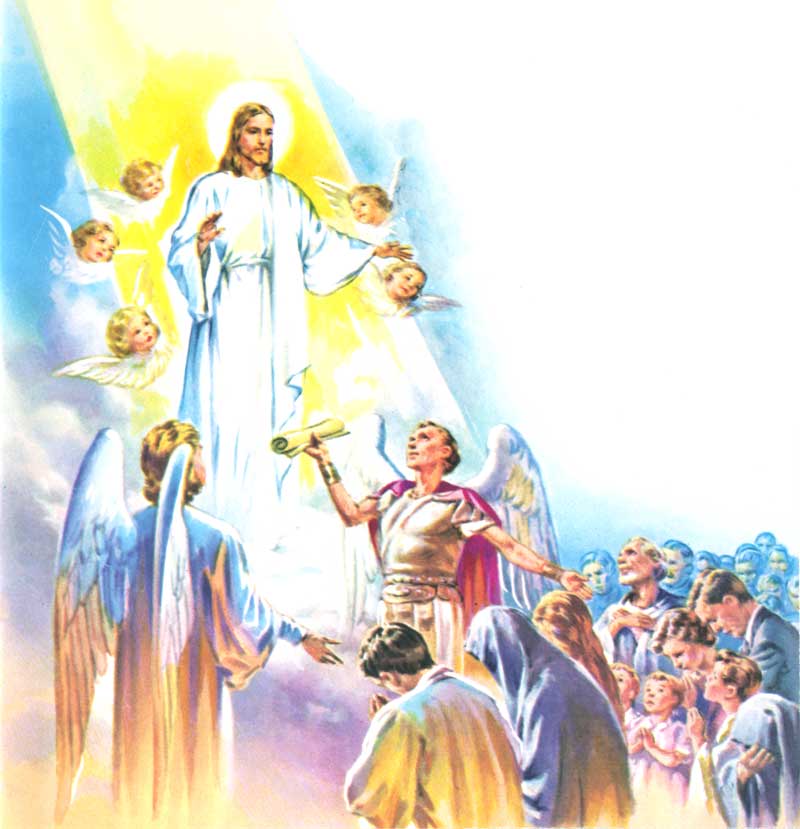
427. — Why do we say that the Saints are members of the same Church as we?
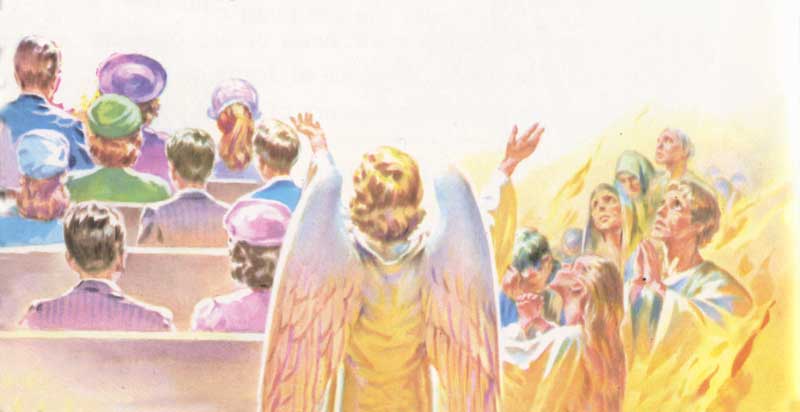
428. — What is the Communion of Saints?

429. — What are the chief advantages resulting from the Communion of Saints?
The chief advantages resulting from the Communion of Saints are as follows:
1. On earth, the living members of the Church help each other mutually with their prayers and good works, and are helped by the intercession of the Saints in Heaven.
2. The souls in Purgatory are relieved by the Saints in Heaven and the faithful on earth, whom they help in return by their intercession.
Click on the dots to match the text to the audio.
Audio of the Lesson
Glossary
To honor the Saints is to have a religious respect for them.
To invoke the Saints is to pray to them.
A miracle is a favor, a fact, an event contrary to the laws of nature and which can, therefore, happen only by the omnipotence of God.
The term Communion of Saints does not mean the reception of the sacrament of the Eucharist; the word Communion means: association, society, communication, especially mutual. It is the union of the friends of God among themselves.
The word saint means: consecrated to God. It refers to those who live a perfect life on earth and it refers to those who have died in the grace and friendship of God.
The Saints in Heaven are called blessed because they enjoy perfect happiness with God.
To assist one another is to help one another.
Lesson 38: Second Commandment of God
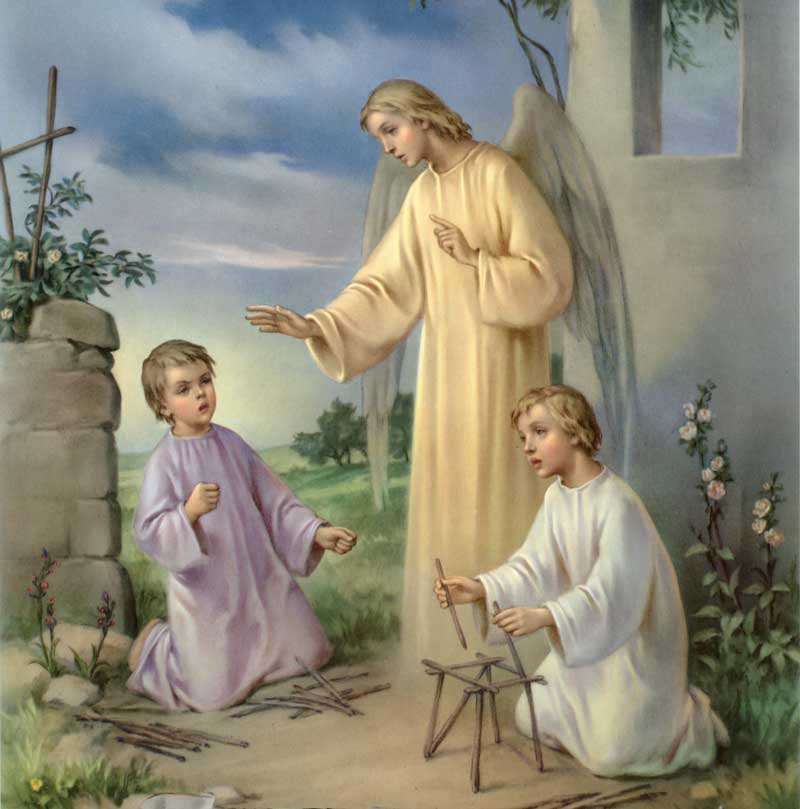
430. — What is the second Commandment of God?
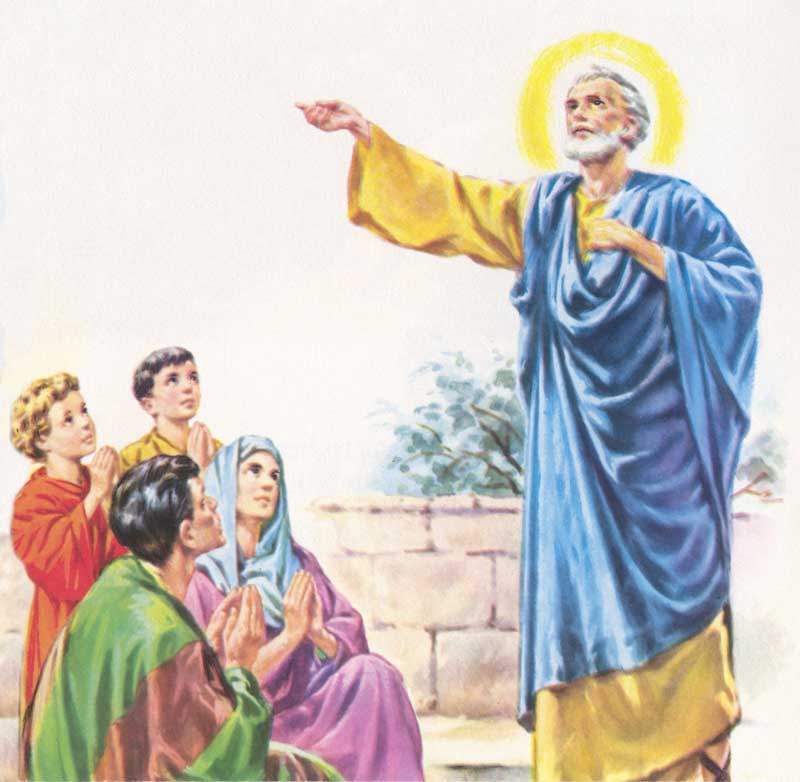
431. — What are we commanded by the second Commandment?

432. — What does it mean to take an oath?
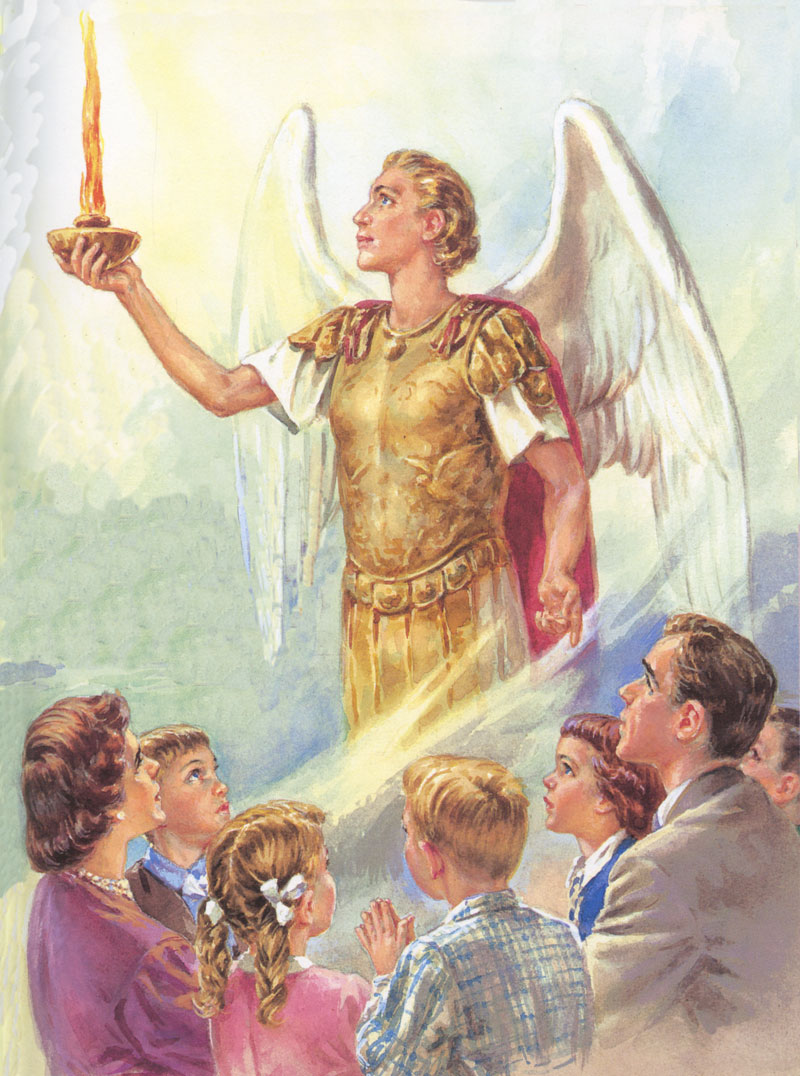
433. — When is it permitted to take an oath?
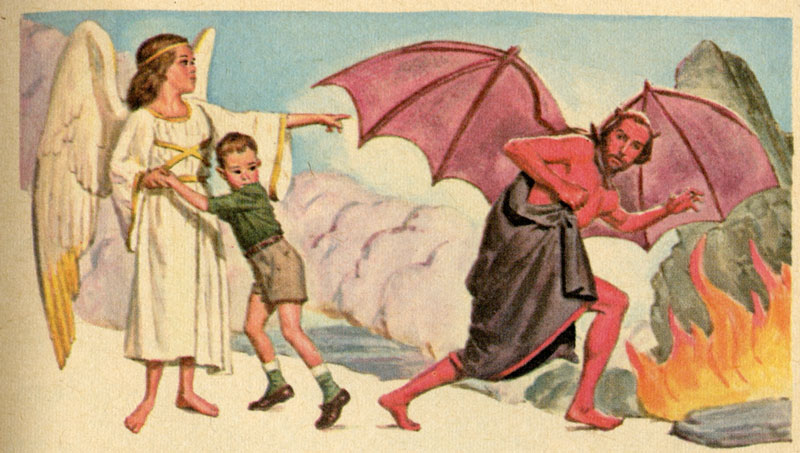
434. — What is swearing in vain?
Swearing in vain is:
1. To take an oath without necessity.
2. To affirm under oath what we know to be false: this is called perjury.
3. To bind oneself by oath to do something forbidden.
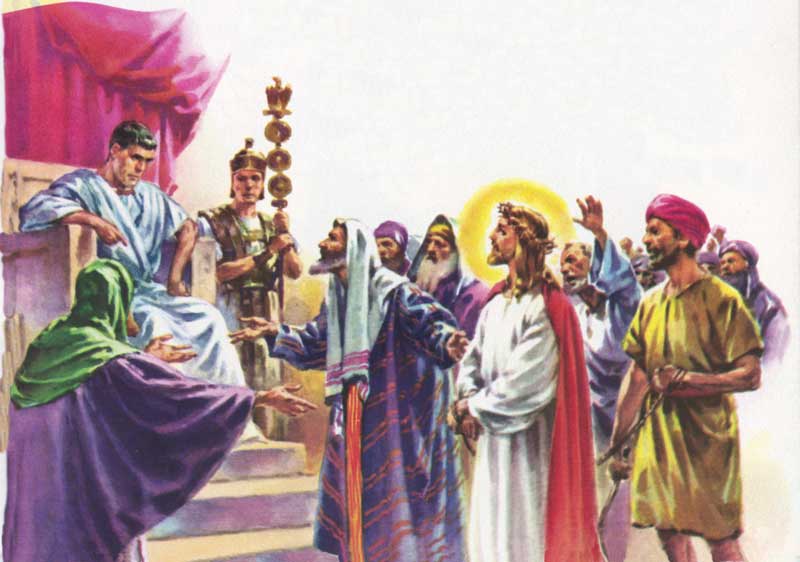
435. — Is perjury, or a false oath, a great sin?
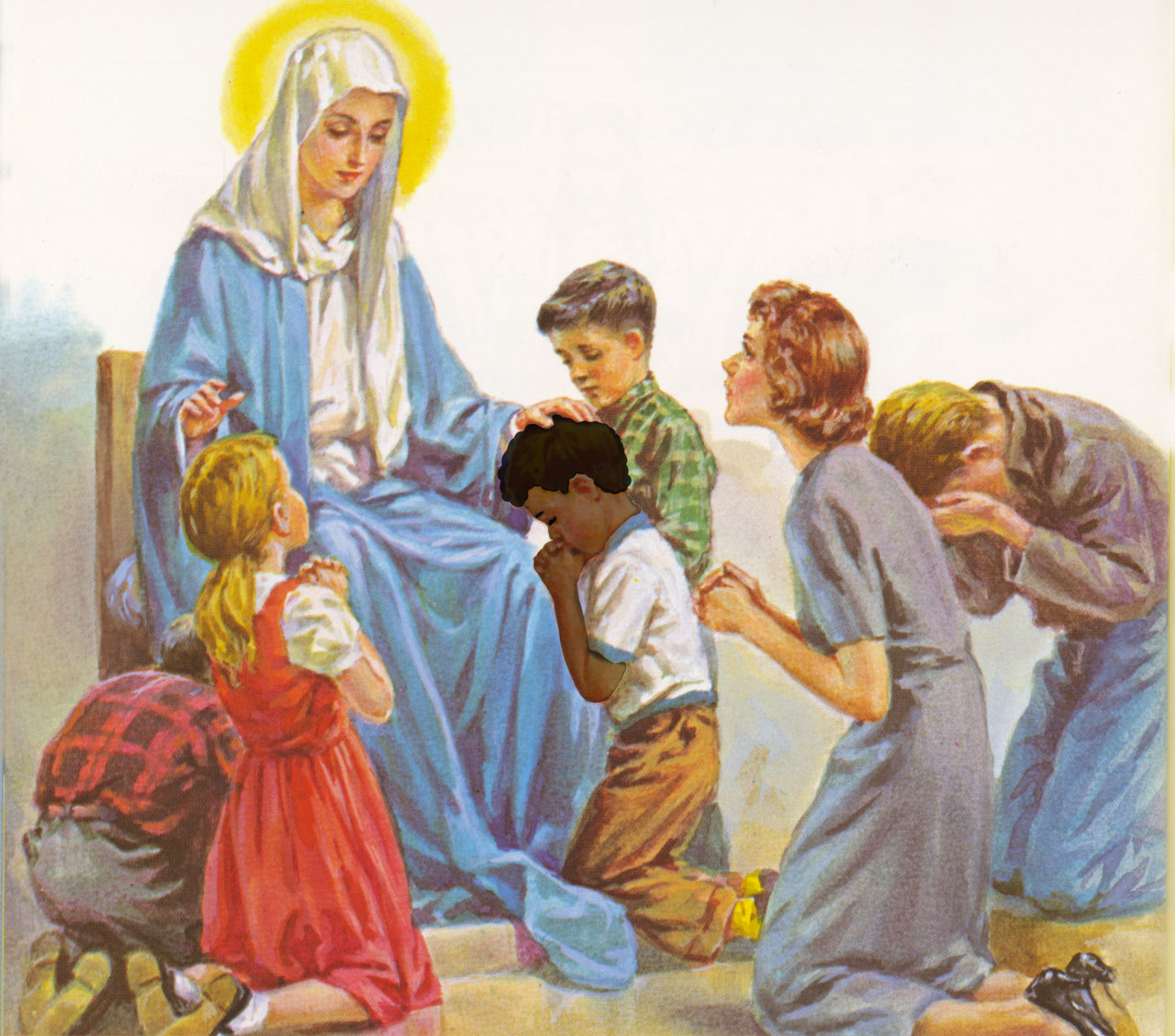
436. — Is the person who has sworn to do something unlawful obliged to keep his oath?
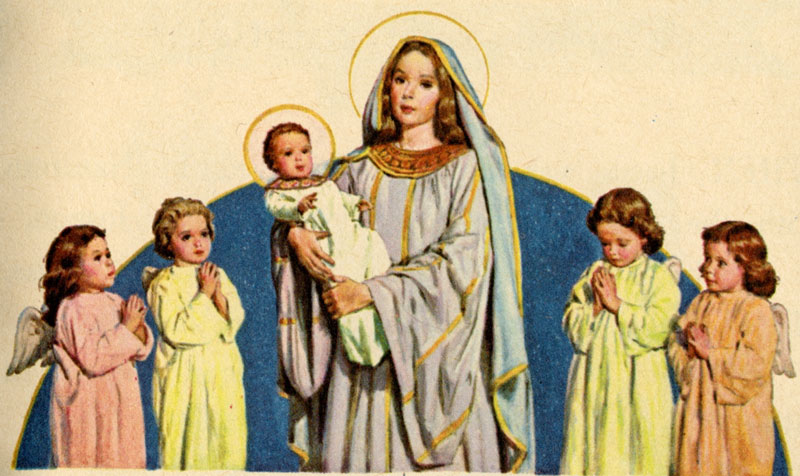
437. — What is a vow?
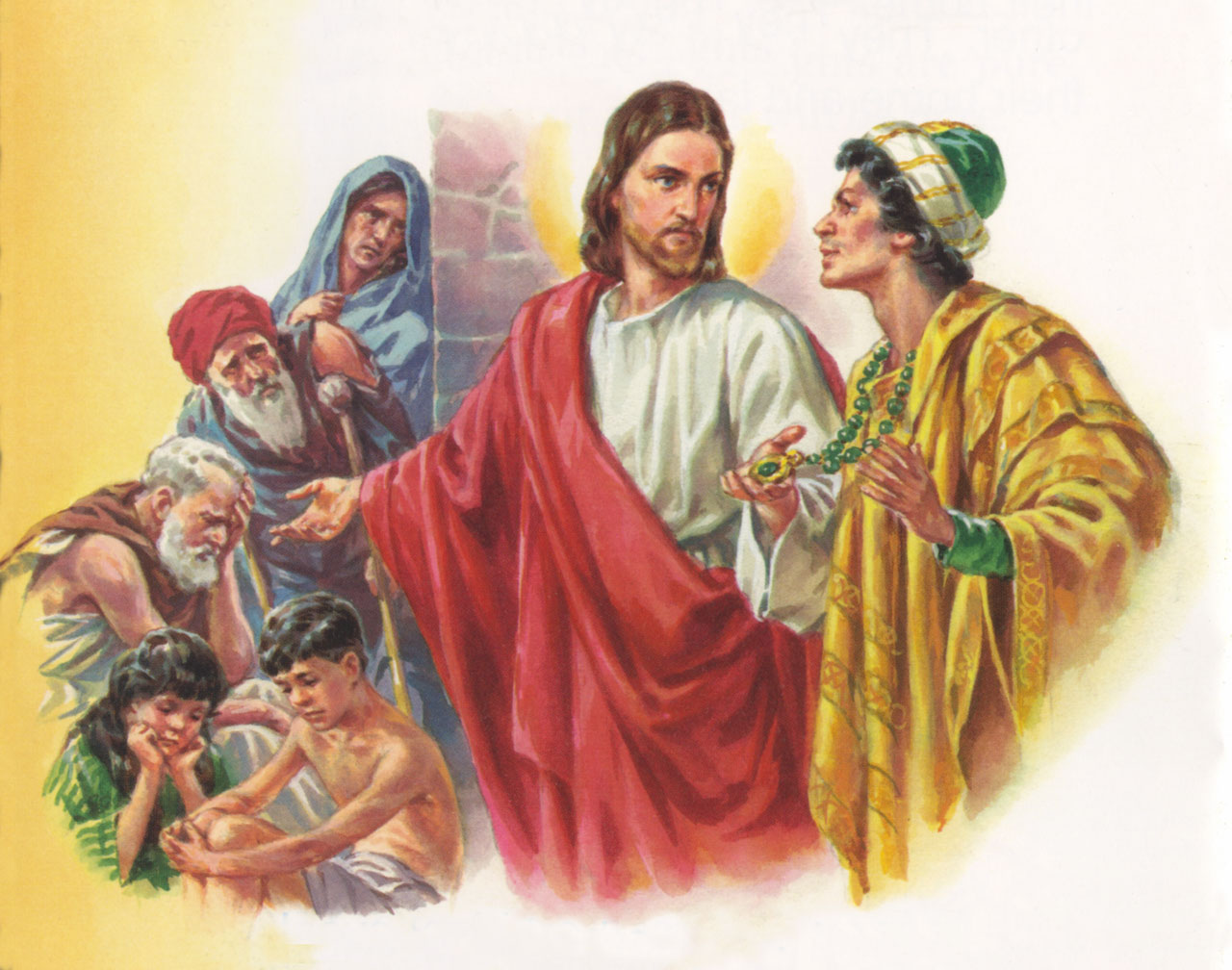
438. — Is it a sin not to fulfill a vow?

439. — Is it good to make vows?
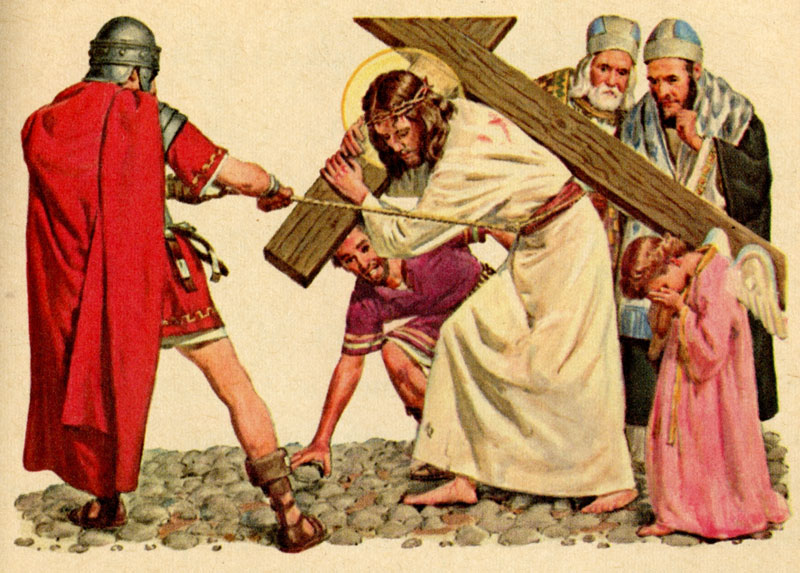
440. — Besides false, rash and unnecessary oaths, what is forbidden by the second Commandment?
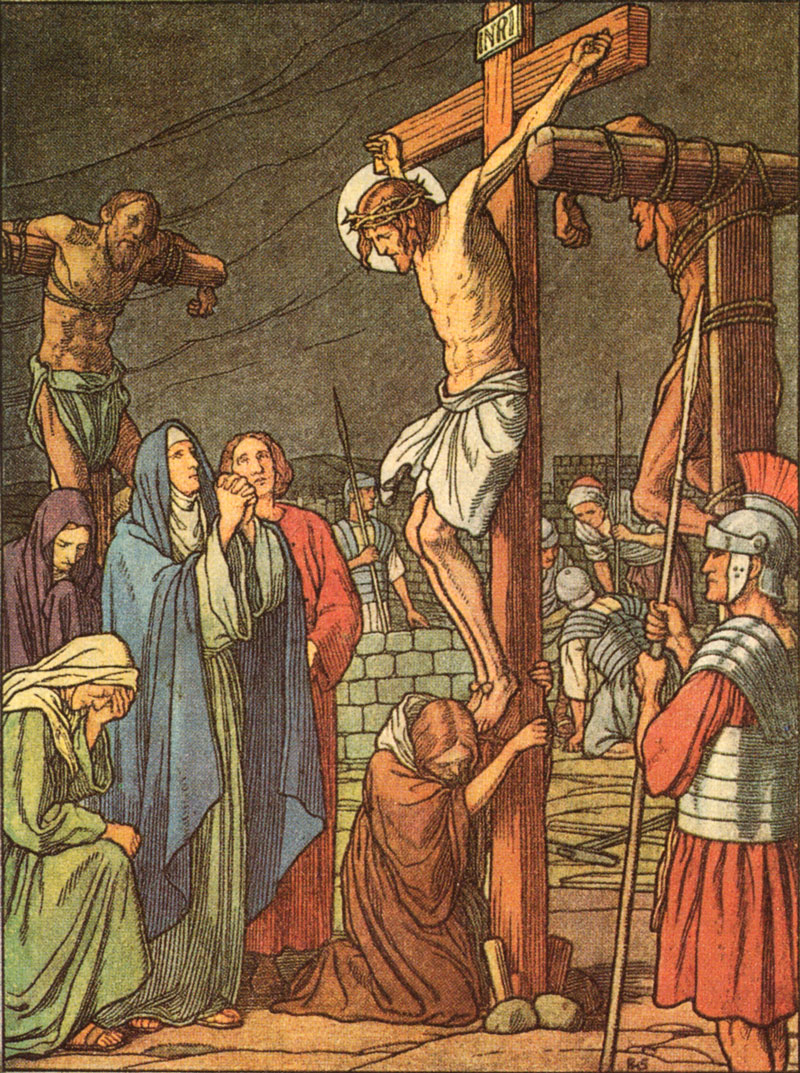
441. — What is blasphemy?

442. — Is blasphemy a serious sin?
Click on the dots to match the text to the audio.
Audio of the Lesson
Glossary
To take God as a witness is to ask God to affirm Himself that what we say is true.
In vain means: unnecessarily.
A false oath is one that is made to affirm something of which we are not absolutely certain, or to promise something that we are not sure we can do.
The unjust oath is the one made to assure or promise a bad or unjust thing.
Lesson 39: Third Commandment of God
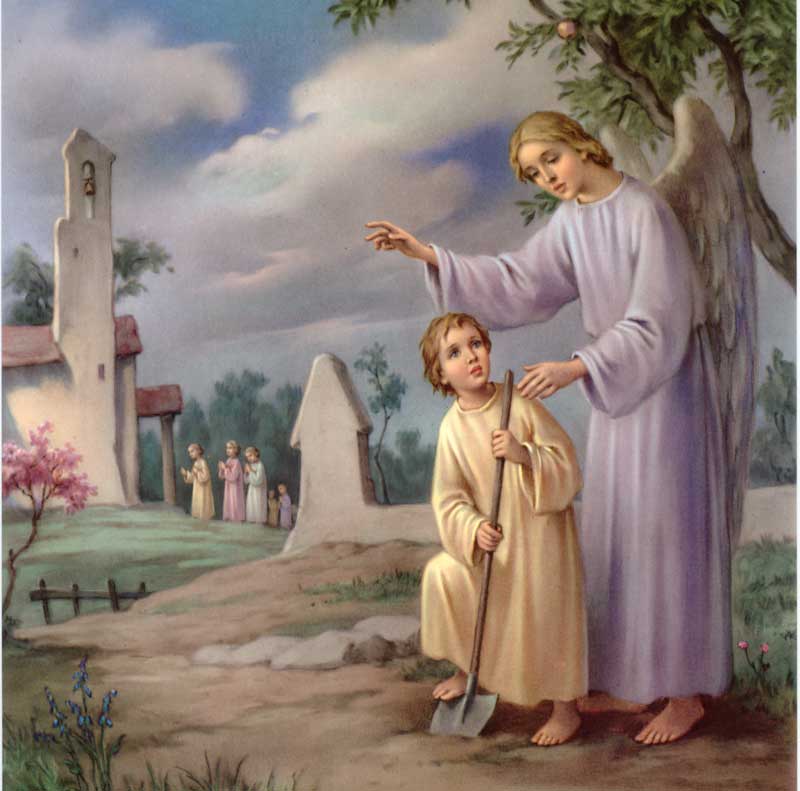
443. — What is the third Commandment of God?
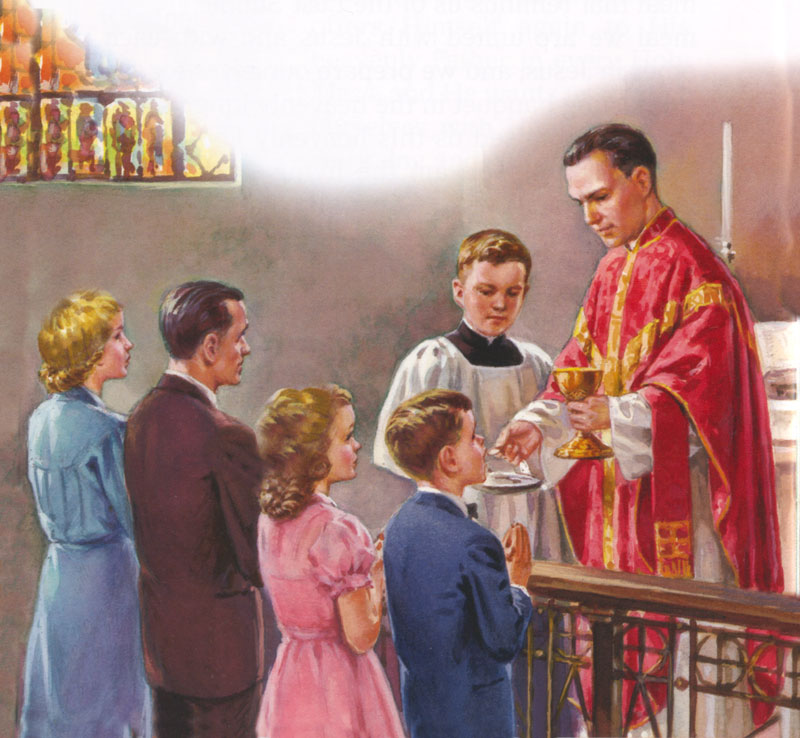
444. — What are we commanded by the third Commandment?
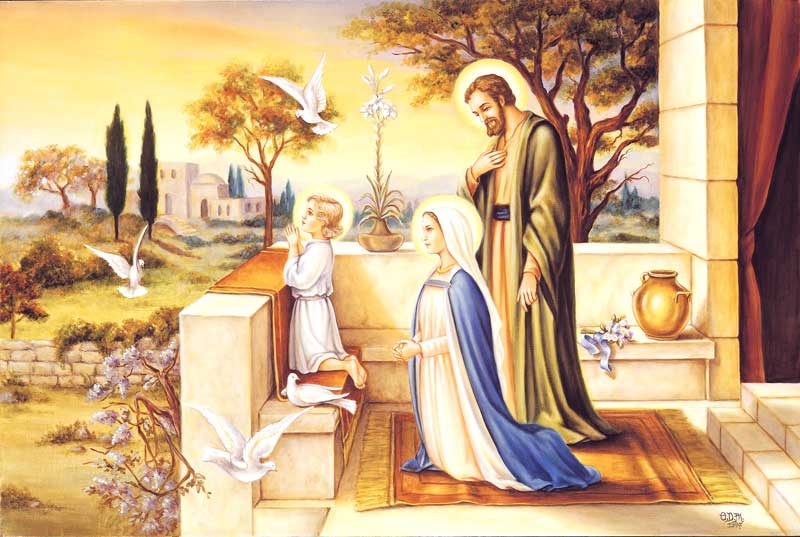
445. — Are the Sabbath day and Sunday the same?

446. — Why does the Church command us to sanctify Sunday instead of the Sabbath?
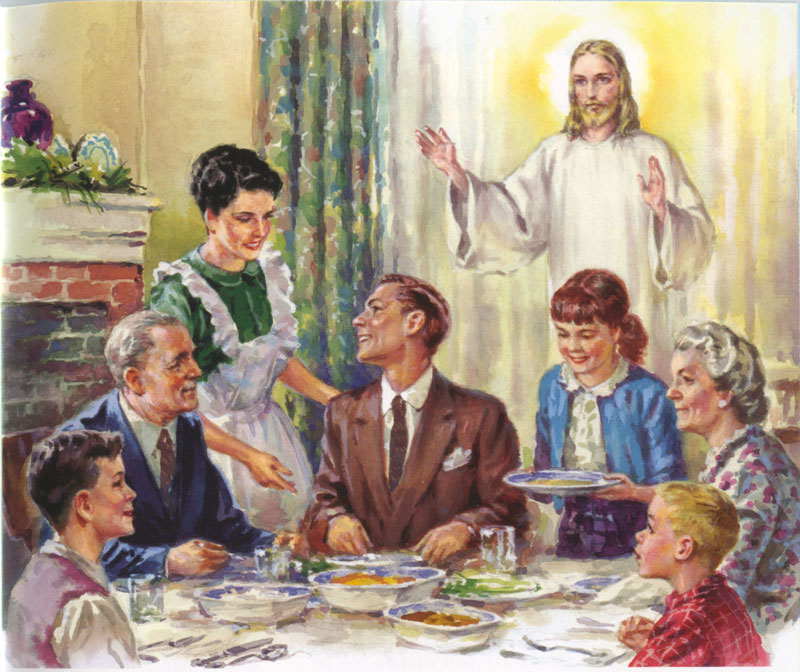
447. — What does it mean to sanctify Sunday?
1. To diminish ordinary activities as much as possible in order to devote time to prayer, holy reading and good works.
2. To abstain from servile works which are not necessary.
3. To make it a duty to attend the holy sacrifice of the Mass.

448. — What do we mean by servile works?
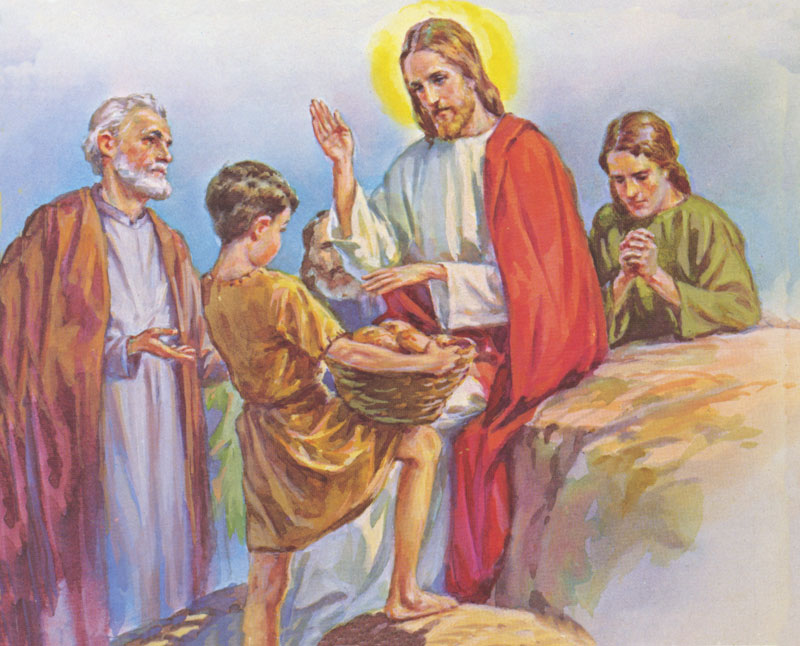
449. — Are servile works on Sunday ever lawful?
Click on the dots to match the text to the audio.
Audio of the Lesson
Glossary
To keep holy the Lord’s Day or Sanctify Sunday is to reserve Sundays for the service of God. The Christian must live this day in greater recollection to better pray to God; examine himself to rectify what is necessary to better serve God; take advantage of the time with his family to stimulate each one to know, love and serve God.
Lesson 40: Fourth Commandment of God
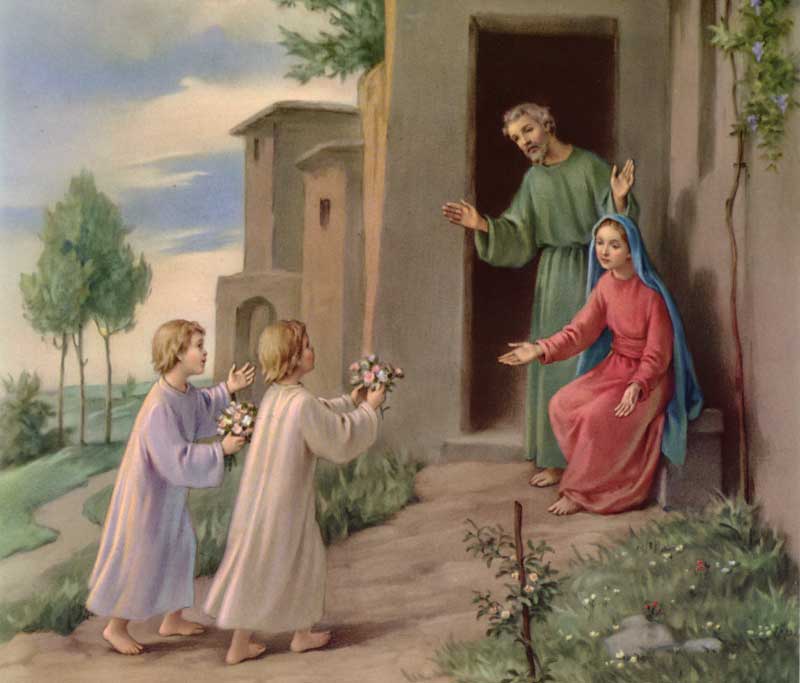
450. — What is the fourth Commandment of God?
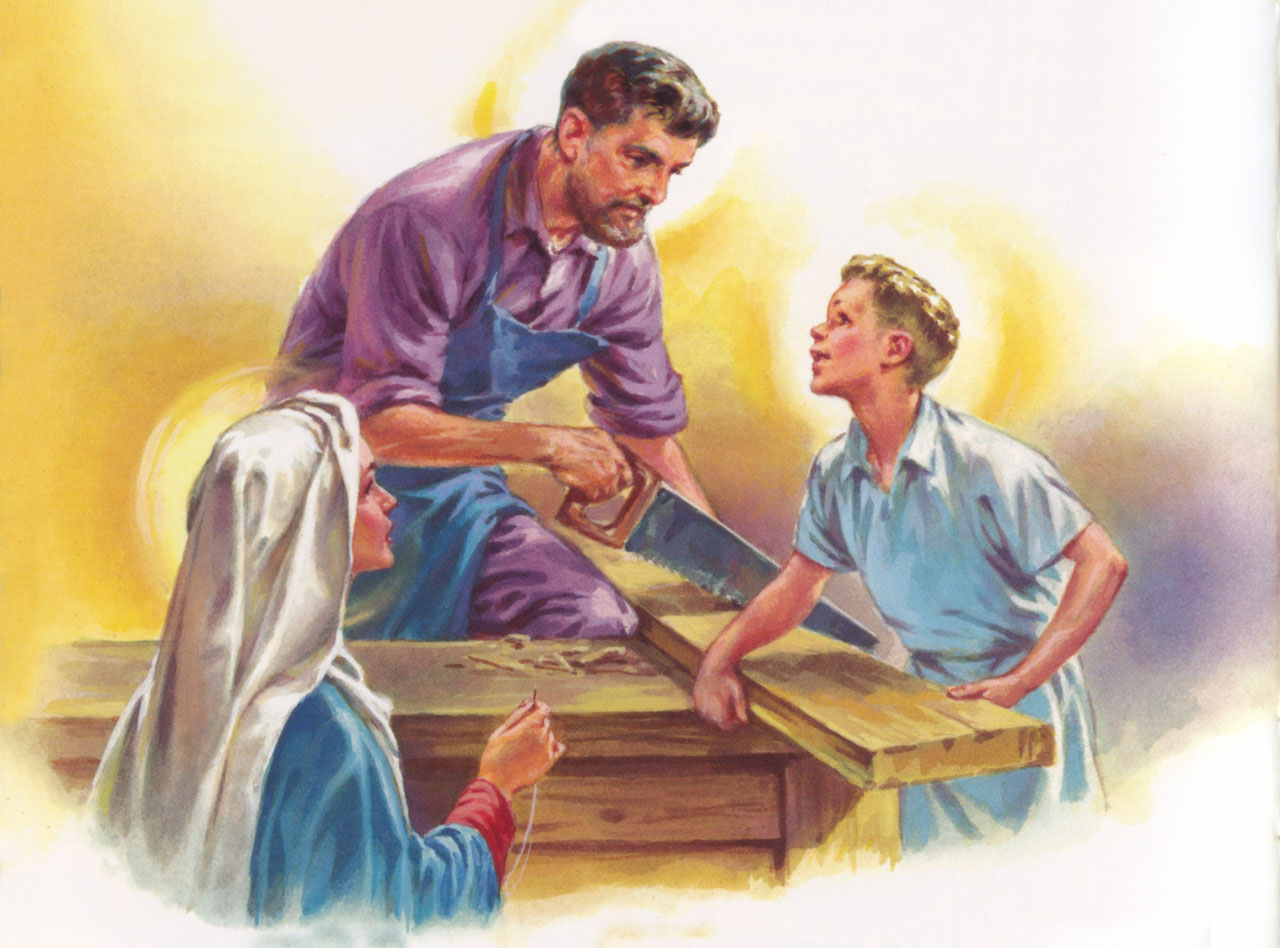
451. — How must we honor our parents?
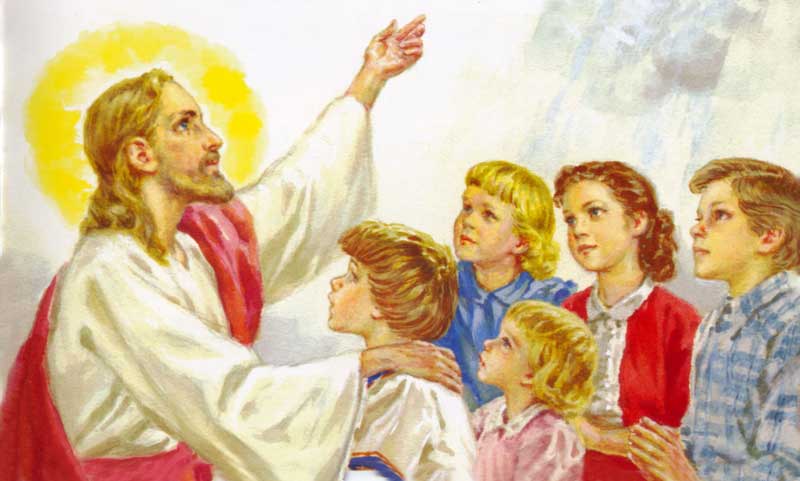
452. — Why must we love our parents?

453. — What does it mean to respect our parents?

454. — Why must we respect our parents and obey them?

455. — Why must we help our parents?

456. — What is the meaning of the words “that thou mayest have a long life”?
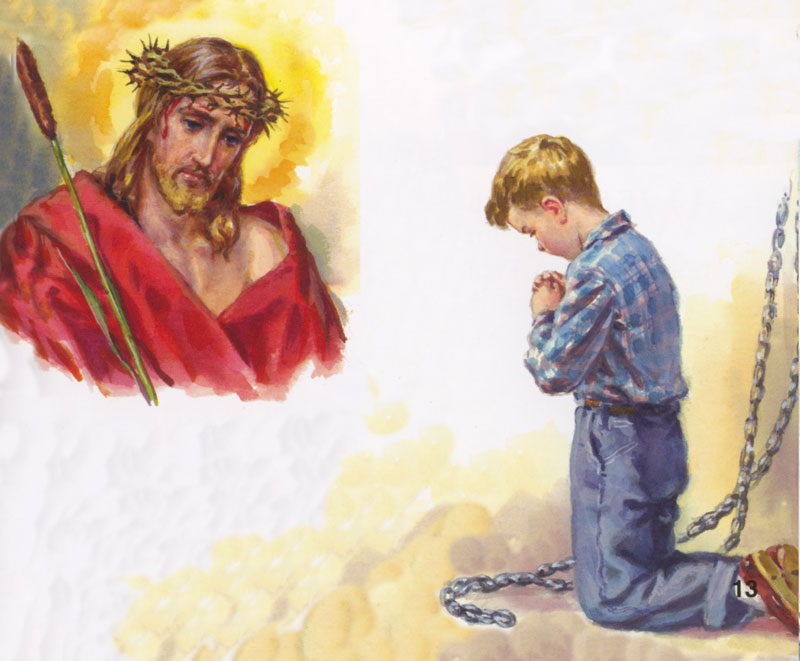
457. — What punishment is inflicted upon children who insult their parents, or who abandon them in their needs?
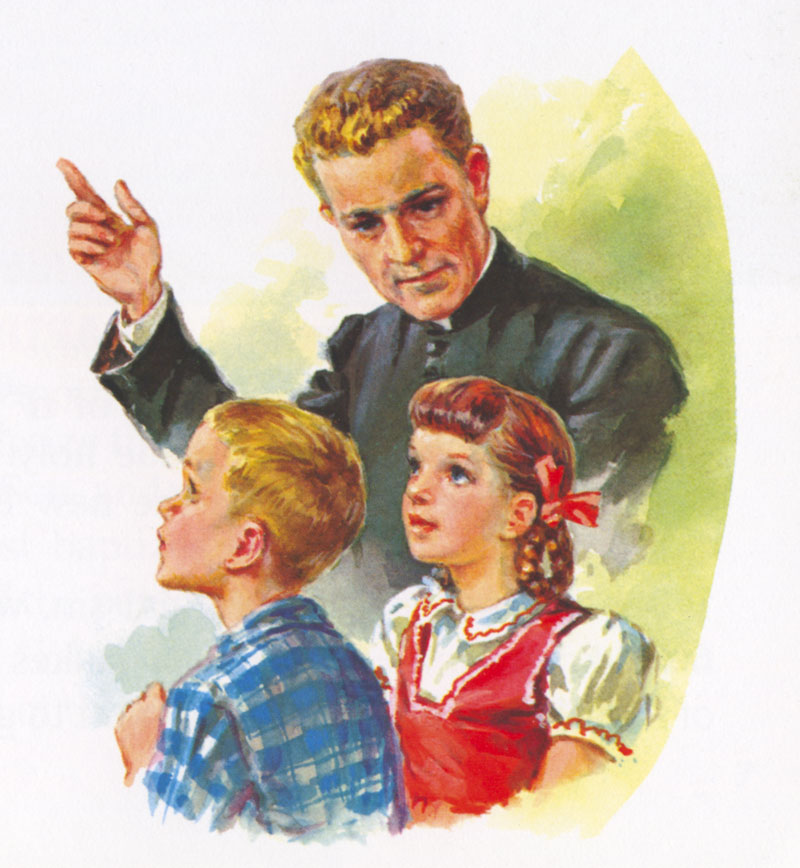
458. — Are our parents the only ones to whom we owe honor and obedience?
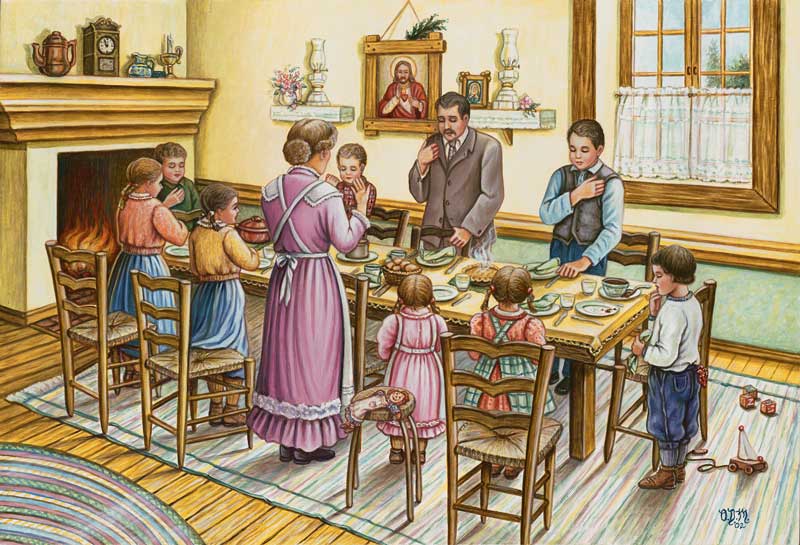
459. — What are the duties of fathers and mothers toward their children?

460. — What are the duties of superiors toward their inferiors?
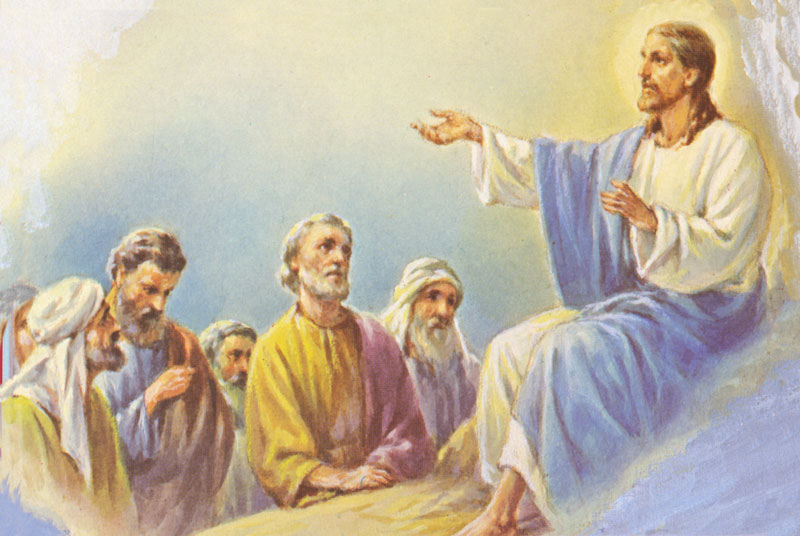
461. — What are the duties of inferiors toward their superiors?
Click on the dots to match the text to the audio.
Audio of the Lesson
Glossary
There is forgiveness for those who insult their parents, as there is for any other sin. God never withholds His Mercy from the soul that repents and asks for forgiveness.
To treat with consideration is to have respectful attentions of charity and gratitude.
Lesson 41: Fifth Commandment of God
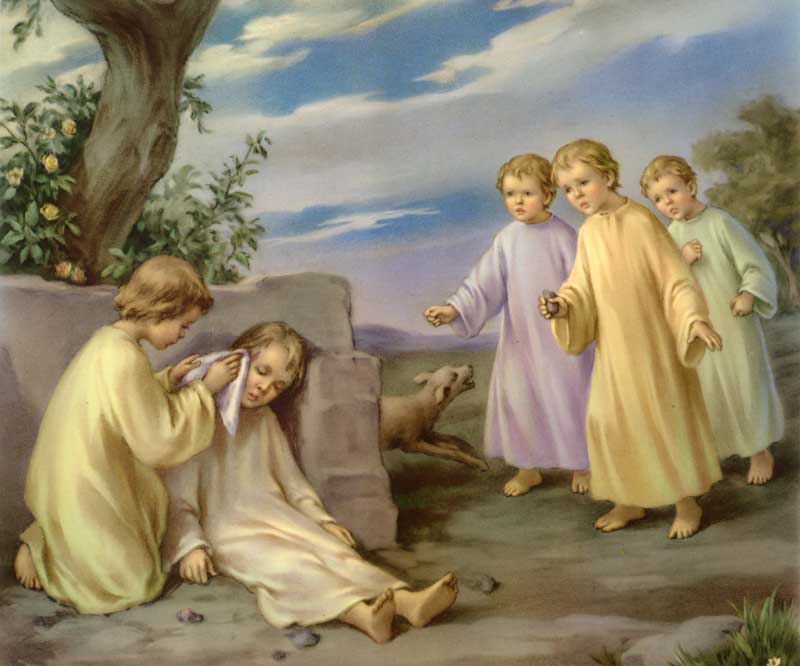
462. — What is the fifth Commandment of God?

463. — What are we commanded by the fifth Commandment?
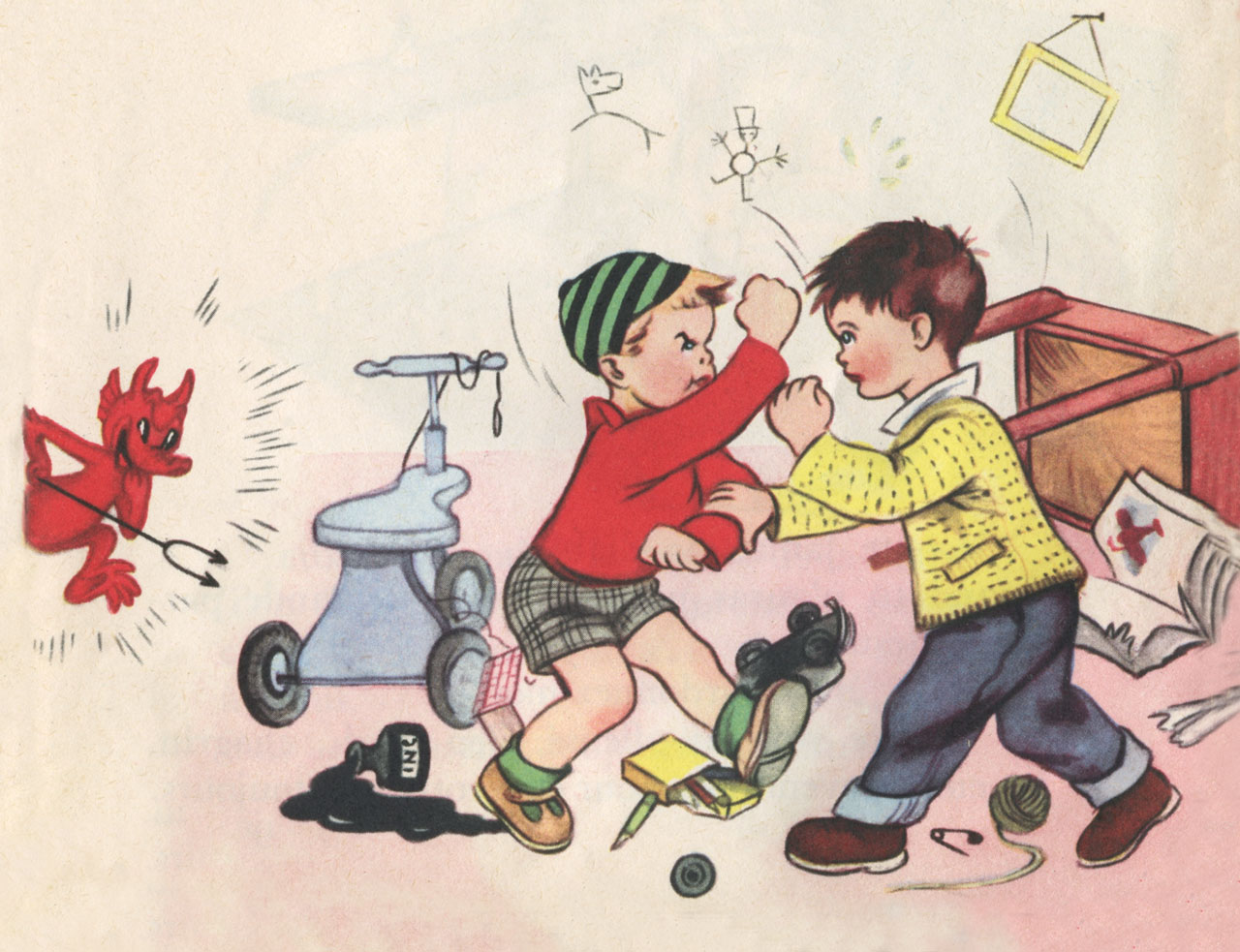
464. — What is forbidden by the fifth Commandment?
The fifth Commandment forbids us:
1. To take our own life or the life of others, and even to desire to do so.
2. To injure or strike our neighbor.
3. To hate him, to speak insulting words to him.
4. To yield to envy, anger, and desires of revenge.
5. To give scandal.

465. — Who is the Master of life?

466. — What does scandalizing our neighbor mean?

467. — Are we obliged to repair the harm we have done to our neighbor?
Click on the dots to match the text to the audio.
Audio of the Lesson
Glossary
To respect the life of one’s neighbor is, above all, not to wound him by sin, that is, not to cause him to lose the sanctifying grace which is the life of the soul.
The expression “to scandalize our neighbor” is often used in the sense of doing an act which produces a “painful impression” on the conscience of our neighbor, without this causing him to offend God. That is not what we are talking about here.
Lesson 42: Sixth and Ninth Commandments of God

468. — What is the sixth Commandment of God?
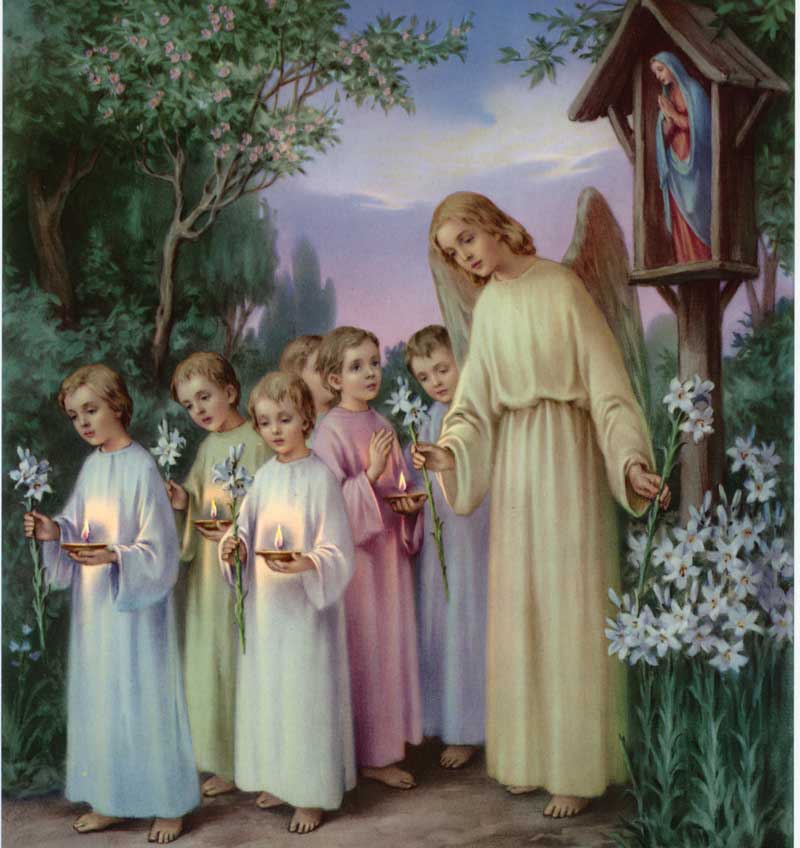
469. — What is the ninth Commandment of God?

470. — What are we commanded by the sixth Commandment?
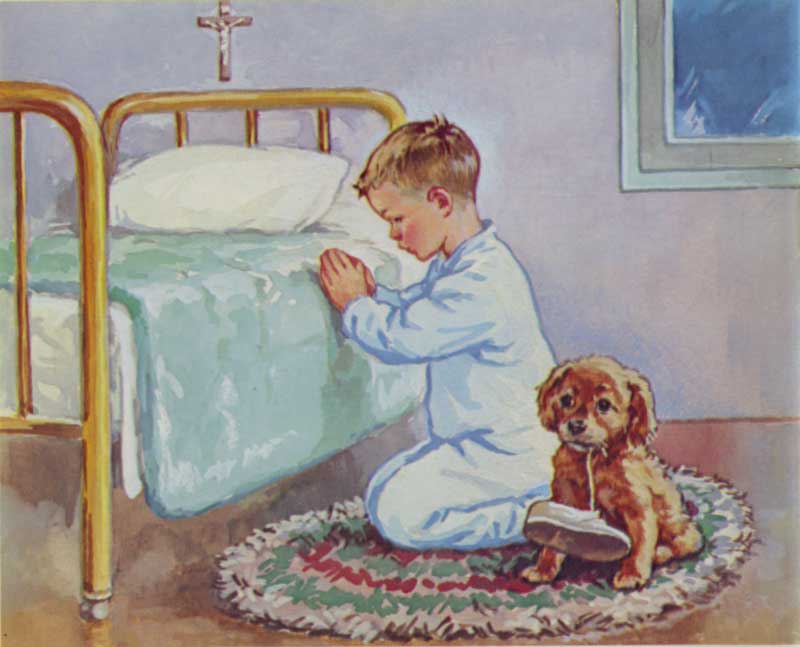
471. — What are we commanded by the ninth Commandment?

472. — What is forbidden by the sixth Commandment?
The sixth Commandment forbids us:
1. All indecent familiarities and all immodesty with ourselves or others in looks, words or actions.
2. All immodesty in clothing.
3. Everything that leads to impurity, such as suggestive paintings, films and shows, immoral dances, books, magazines and newspapers, bad company, impure words, etc.
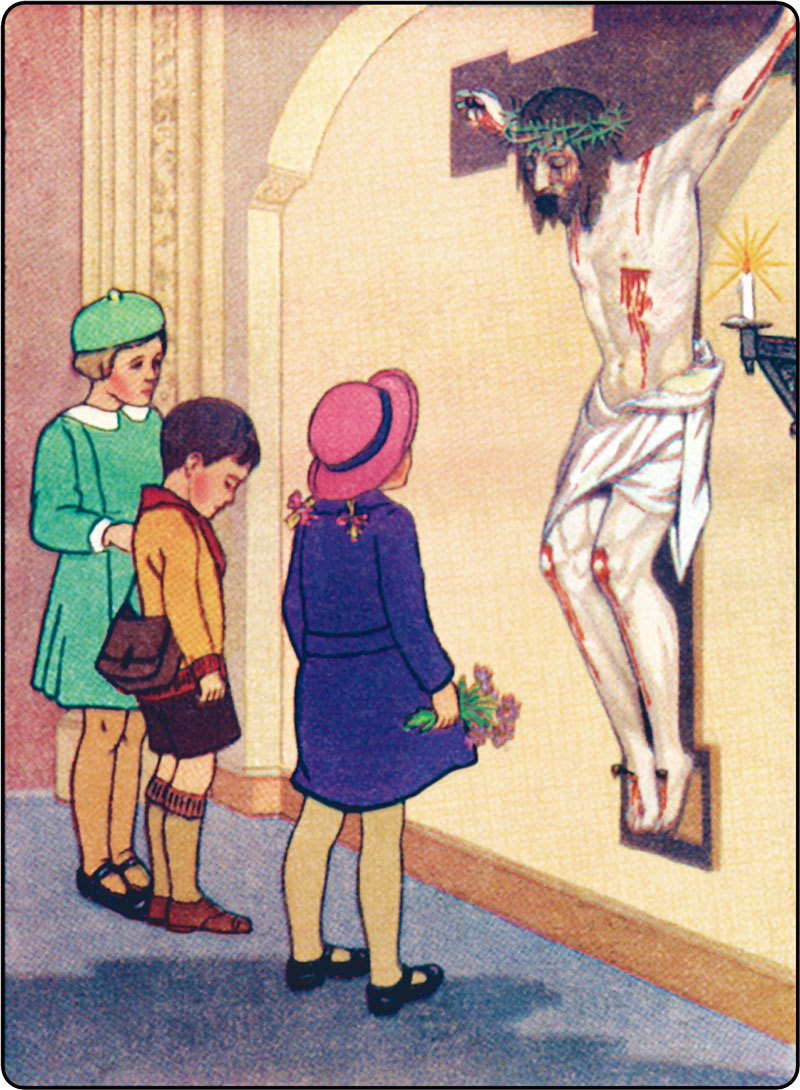
473. — What is forbidden by the ninth Commandment?

474. — Which means should be taken to avoid these sins?
Click on the dots to match the text to the audio.
Audio of the Lesson
Glossary
A fornicator is one who indulges in the sin of uncleanness.
To be fornicating by body is to commit a sin of impurity.
To be fornicating by consent means to desire to commit the sin of impurity, without actually committing it.
To be pure in our thoughts, means to expel from our mind all evil thoughts as soon as we perceive them.
To be modest in our looks is to make sure that our eyes do not look at anything dishonest, that our tongue does not utter any shameful words.
To be modest in our words is to make sure that our tongue does not utter any shameful words.
Lesson 43: Seventh and Tenth Commandment of God

475. — What is the seventh Commandment of God?
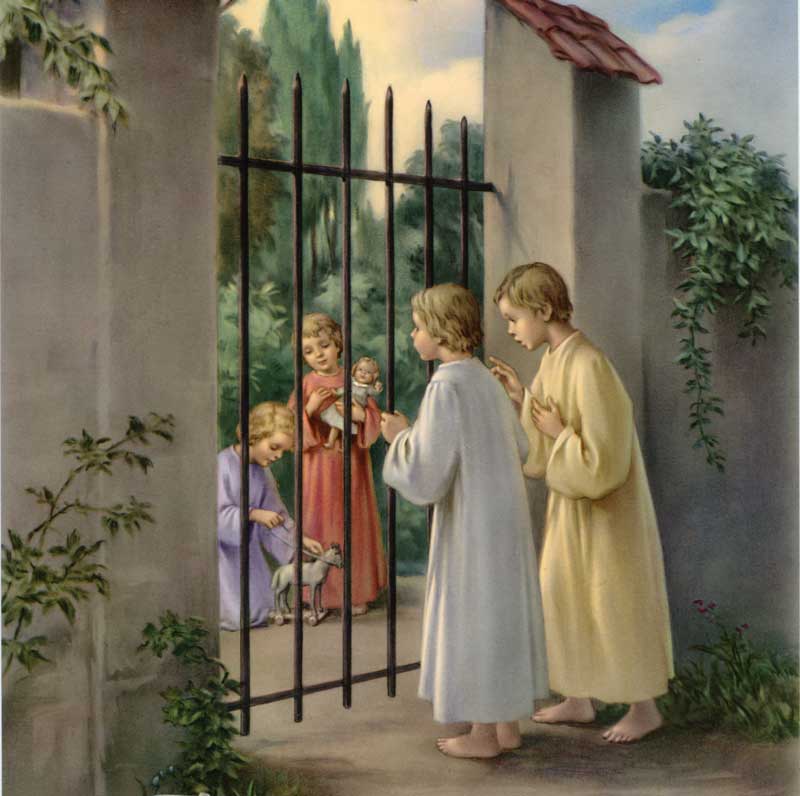
476. — What is the tenth Commandment of God?

477. — What are we commanded by the seventh Commandment?
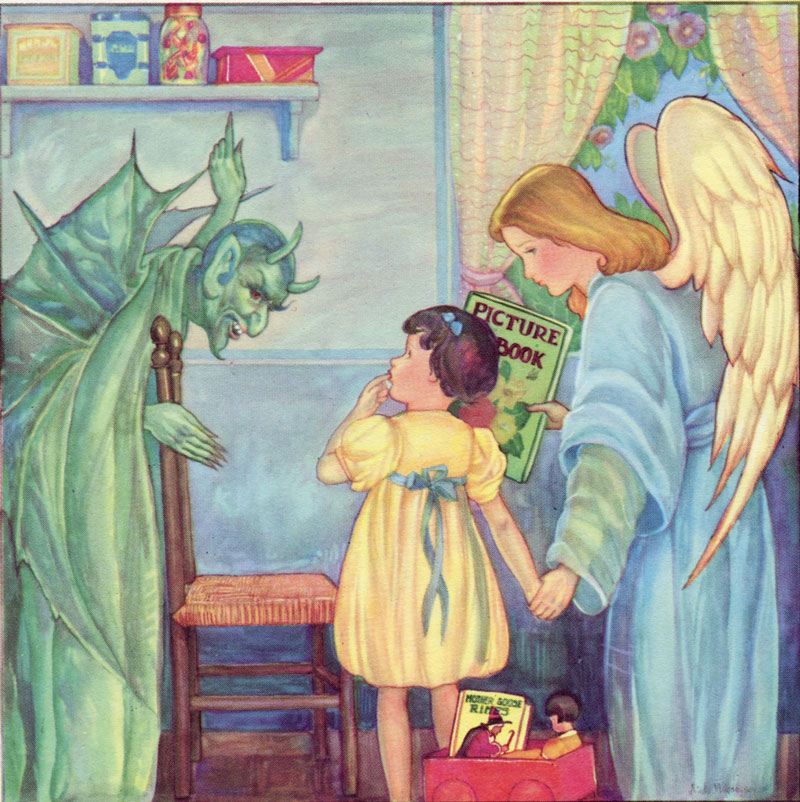
478. — What is forbidden by the seventh Commandment?

479. — What is commanded by the tenth Commandment?

480. — Who are the ones who unjustly take their neighbor’s possessions?
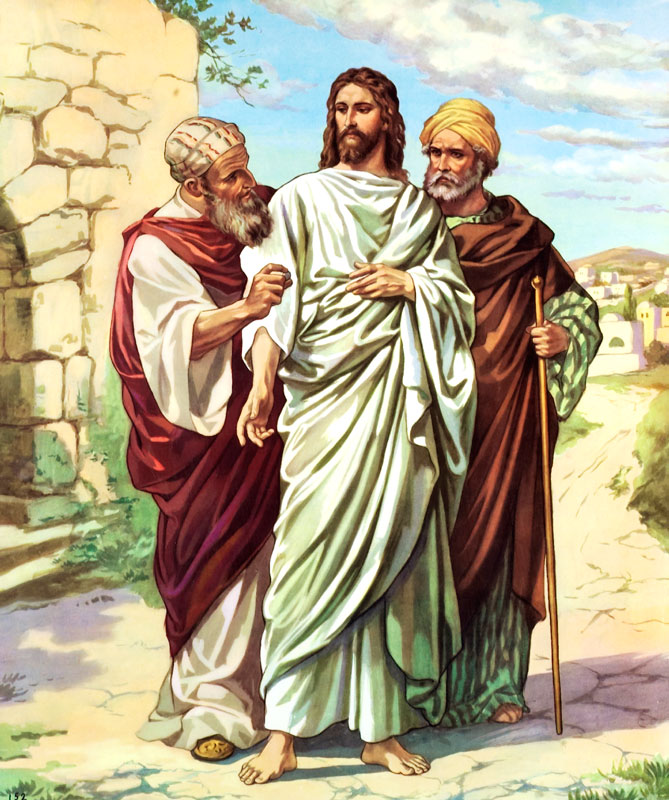
481. — How do we unjustly retain another’s property?
We unjustly retain another’s property:
1. By not paying our debts when we can do so.
2. By not paying just wages.
3. By not returning an object entrusted or loaned to us.
4. By keeping something we find without seeking the rightful owner.
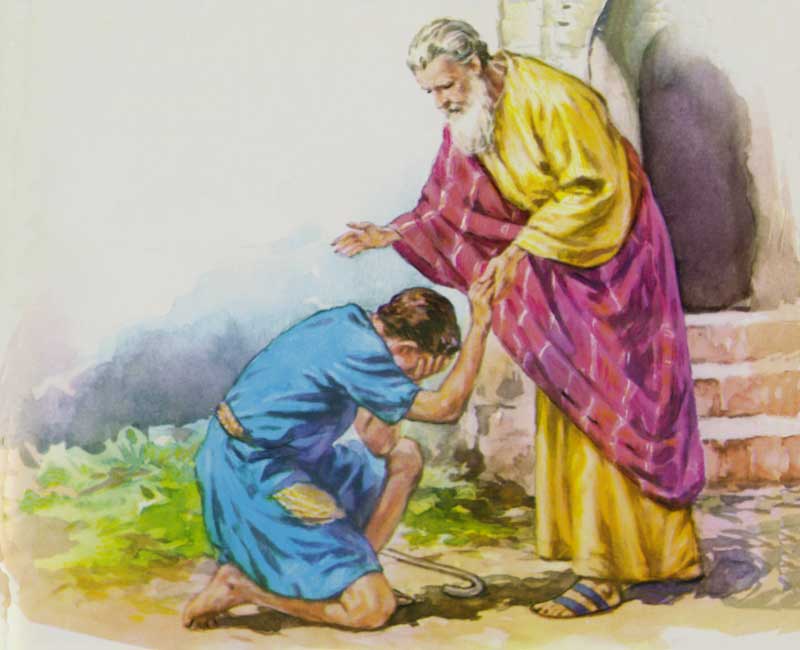
482. — Are we obliged to return ill-gotten goods?

483. — Are we obliged to repair damage we have unjustly caused?
Click on the dots to match the text to the audio.
Audio of the Lesson
Glossary
To repair a damage is to compensate someone for all the harm done to them.
Lesson 44: Eighth Commandment of God
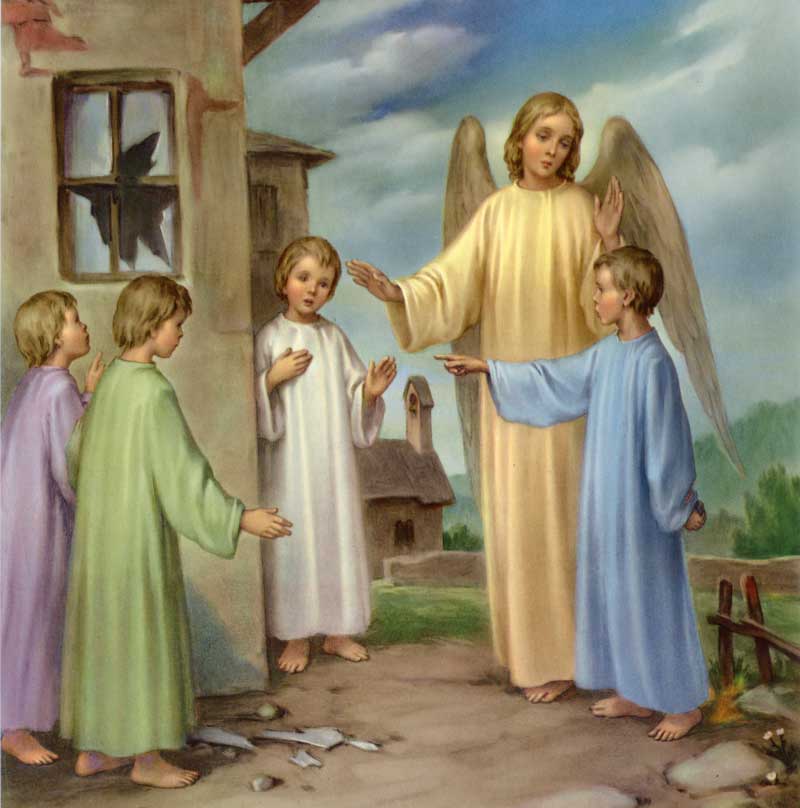
484. — What is the eighth Commandment of God?
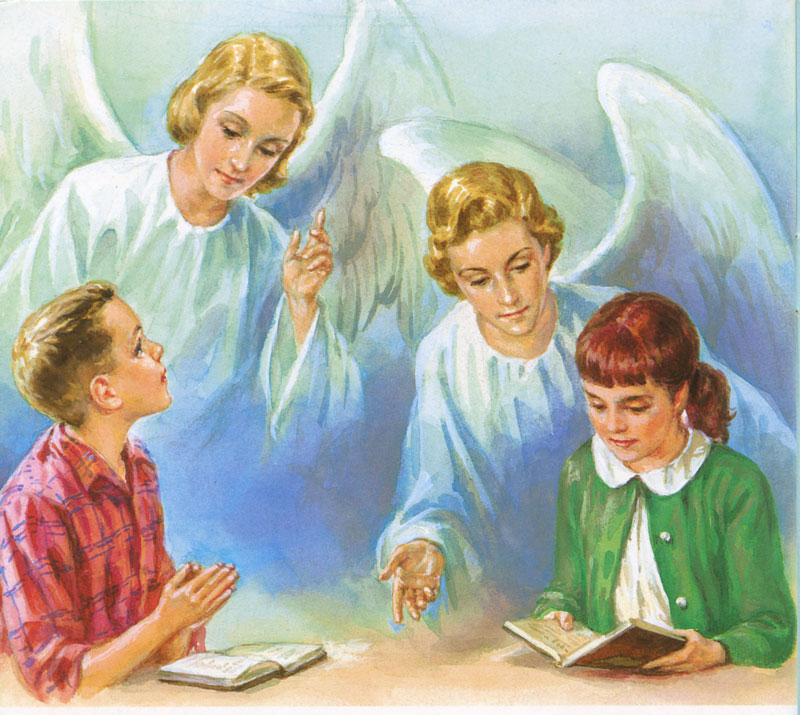
485. — What are we commanded by the eighth Commandment?

486. — What is forbidden by the eighth Commandment?
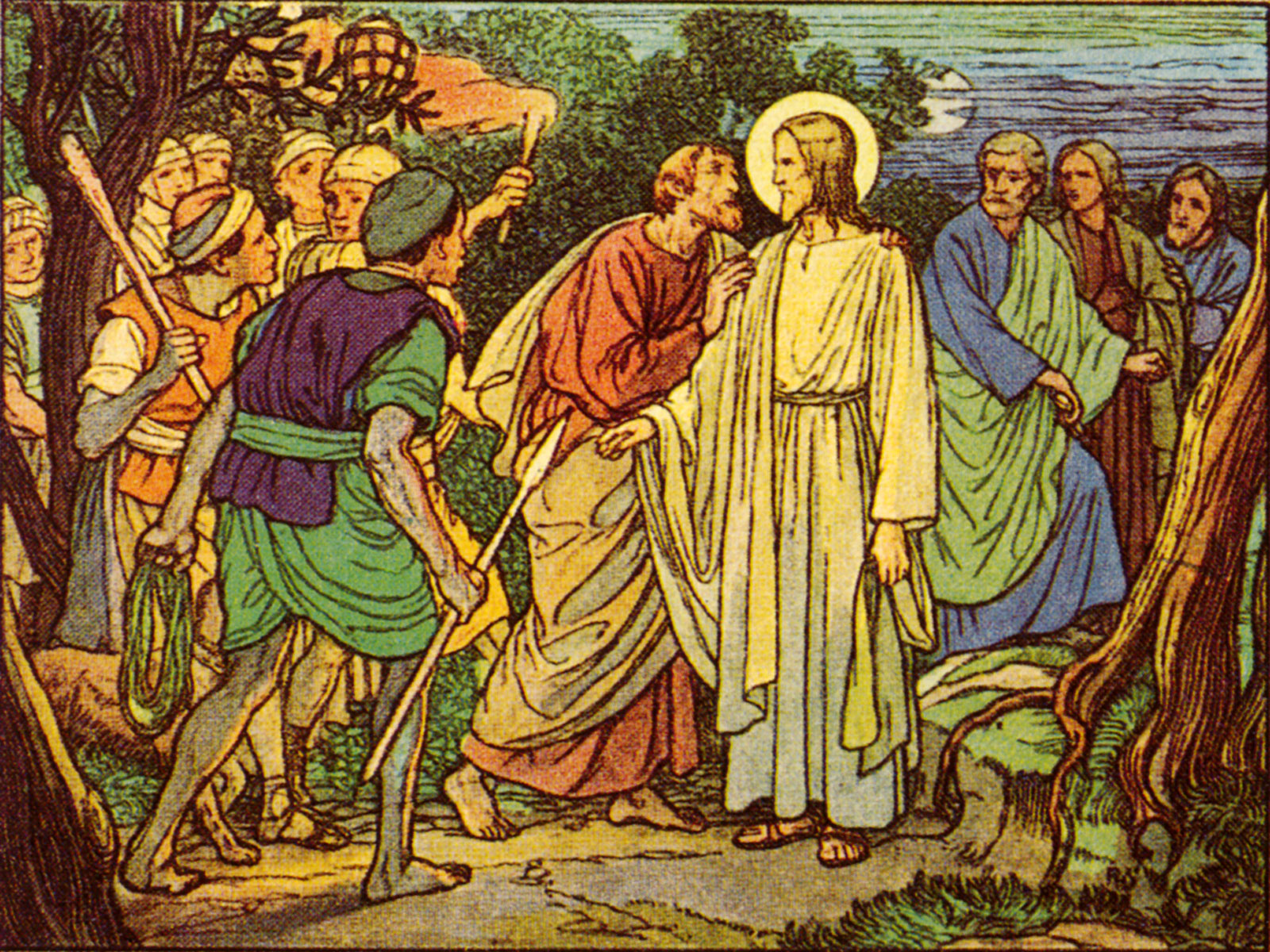
487. — What is lying?

488. — What is false testimony?

489. — What is detraction?
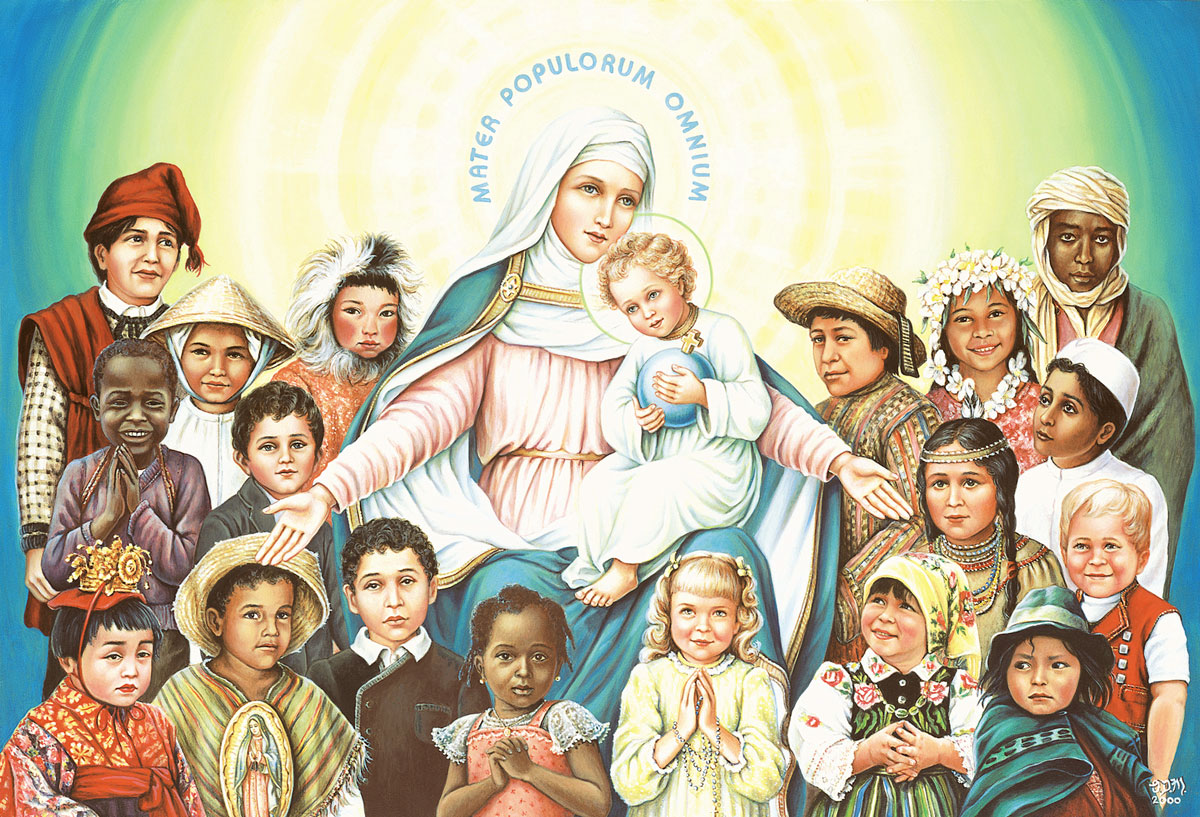
490. — How can we repair the harm done to our neighbor by detraction?
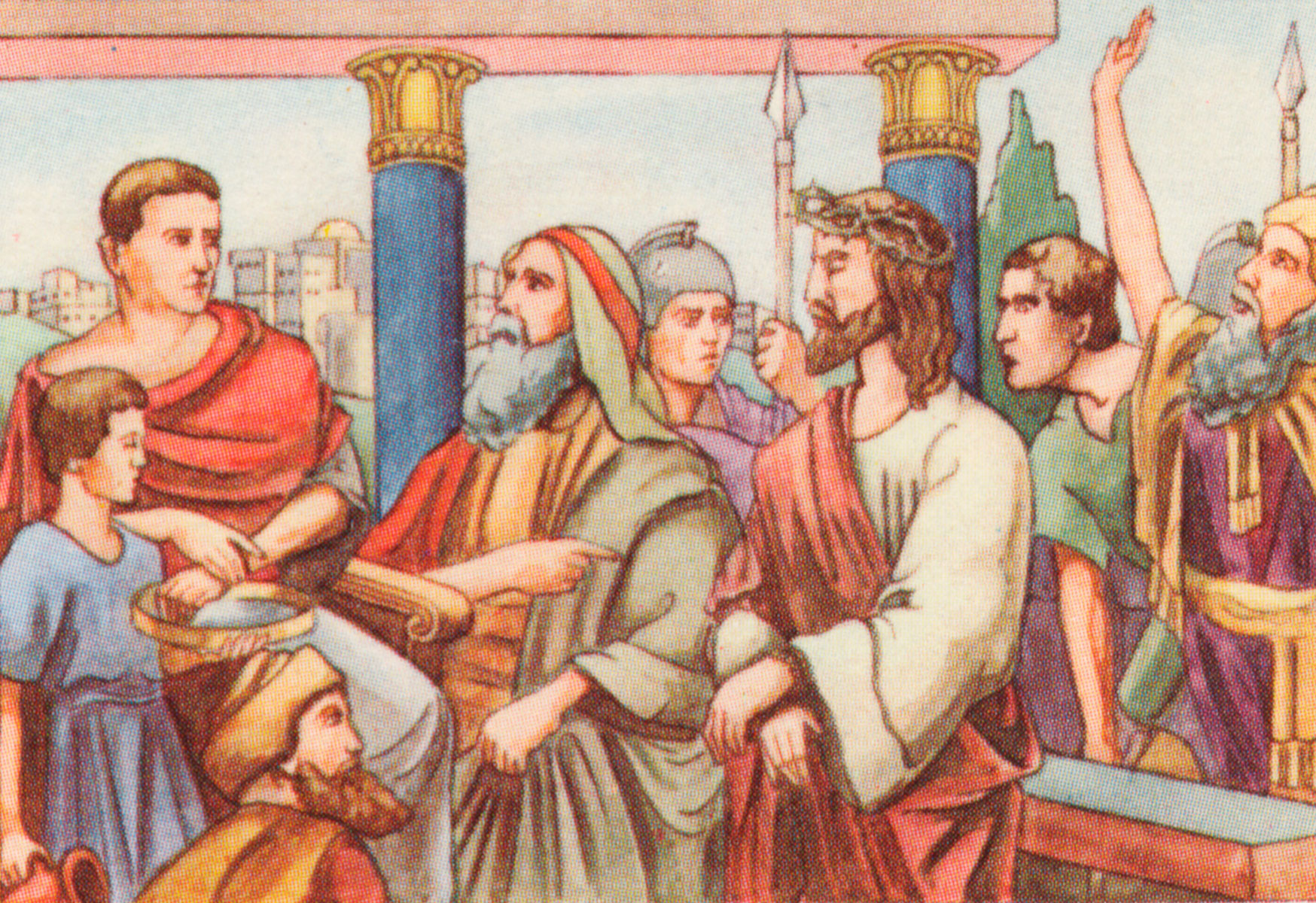
491. — What is calumny?

492. — How must we repair the harm done to our neighbor by calumny?

493. — What is rash judgment?
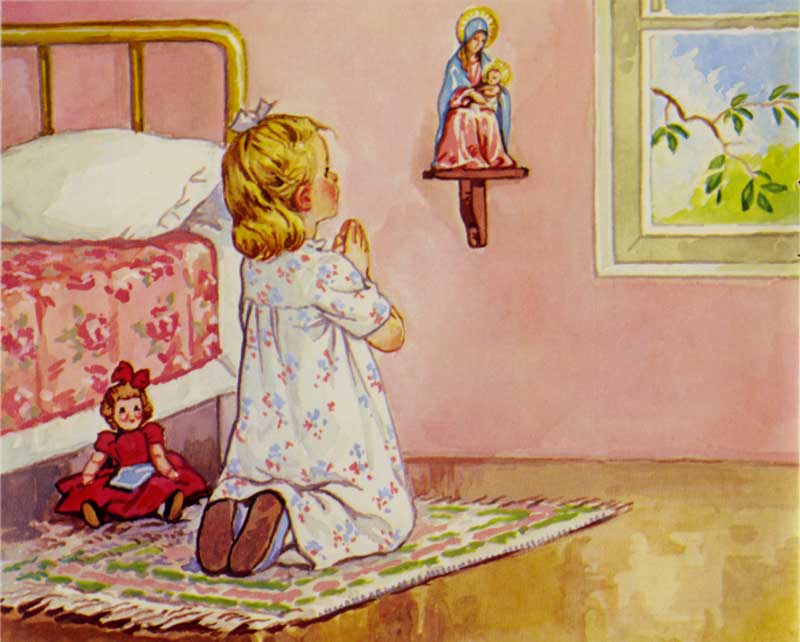
494. — What must our dispositions be toward those who do us harm?
Click on the dots to match the text to the audio.
Audio of the Lesson
Glossary
Respecting the honor of our neighbor means not saying or doing anything that might make others despise him.
Reputation is the opinion we have of a person.
Lesson 45: The Commandments of the Church
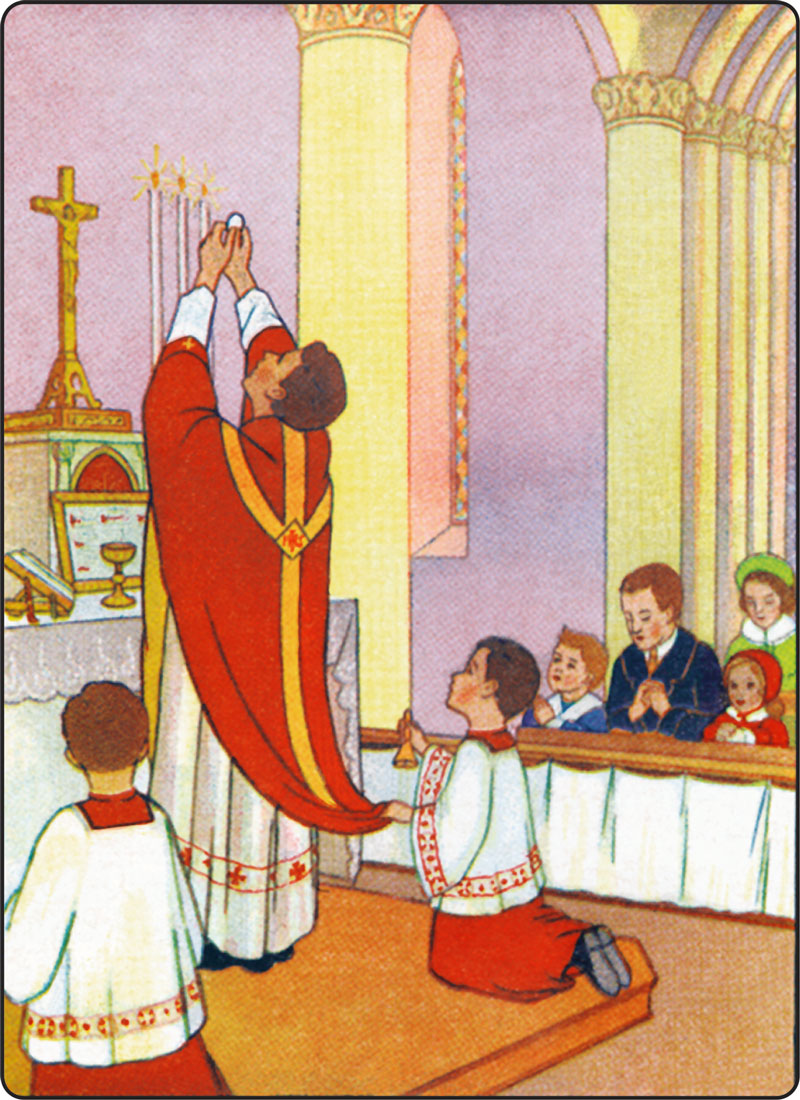
495. — What are the chief Commandments of the Church?
The chief Commandments of the Church are:
1. To attend Holy Mass on Sundays and holy days of obligation.
2. To confess all our sins at least once a year.
3. To receive Holy Communion at least once a year, during Easter Time.
4. To observe Lent, Ember Days, and other times of penance.
5. To help the Church in its needs.
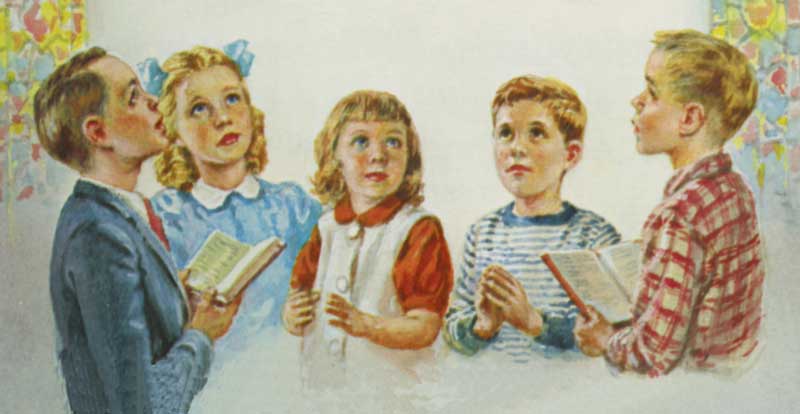
496. — What is the purpose of the Commandments of the Church?

497. — From whom did the Church receive the power to make laws?
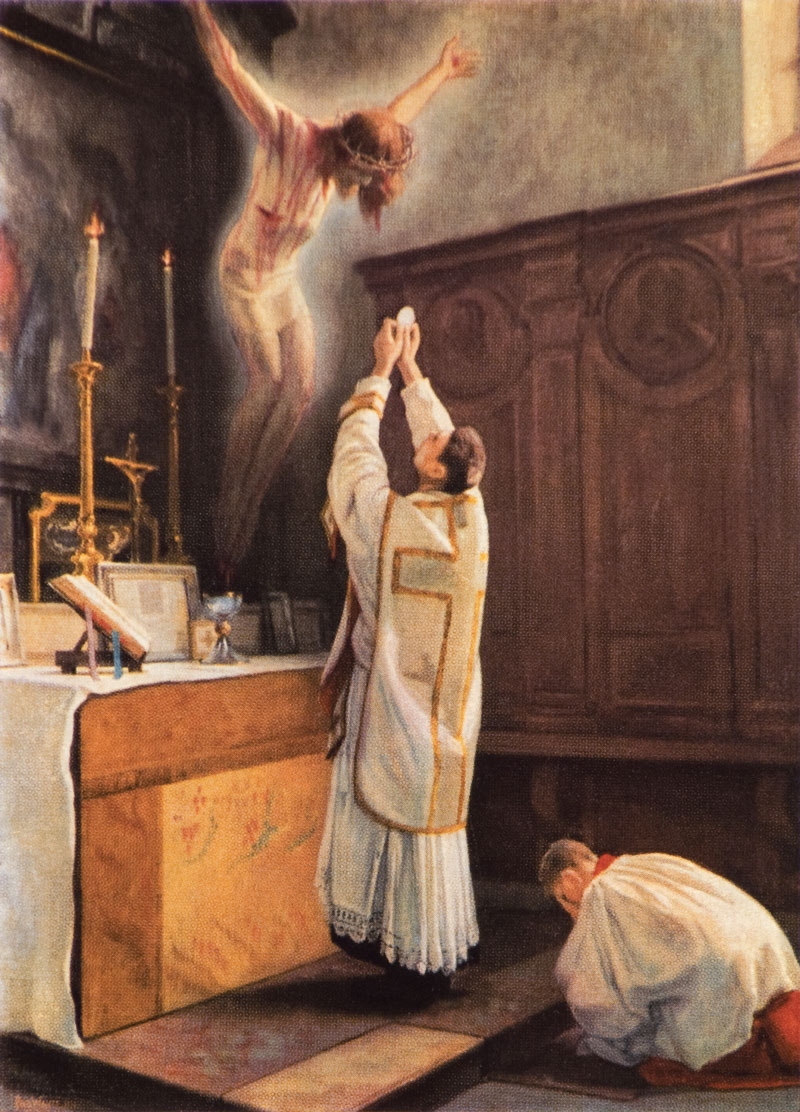
498. — Why does the Church command us to attend Mass on Sundays and holy days of obligation?
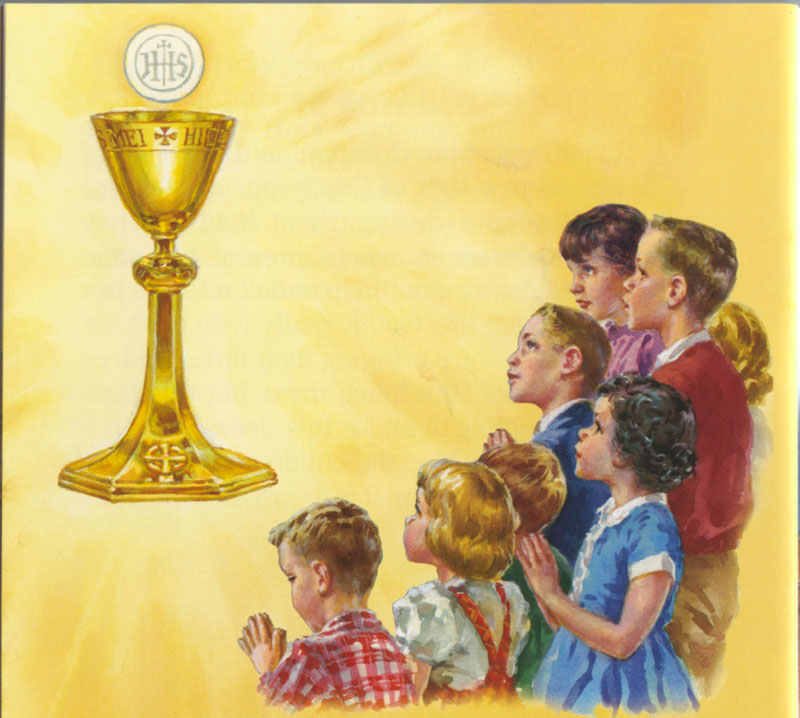
499. — How should we attend Mass?

500. — Why were feast days instituted by the Church?

501. — What does it mean to observe Lent, Ember Days and other times of penance?
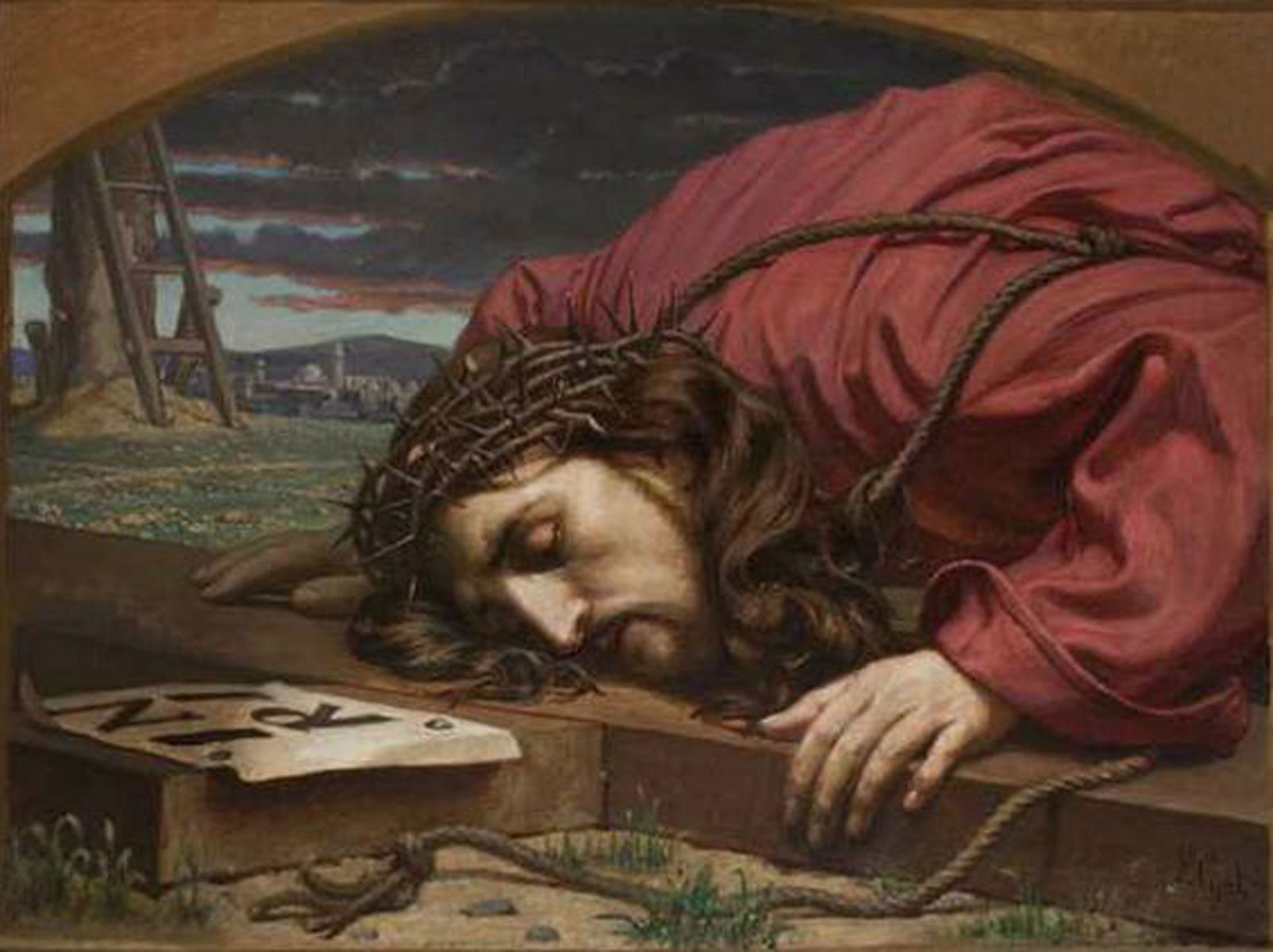
502. — What are the chief practices of penance recommended by the Church?
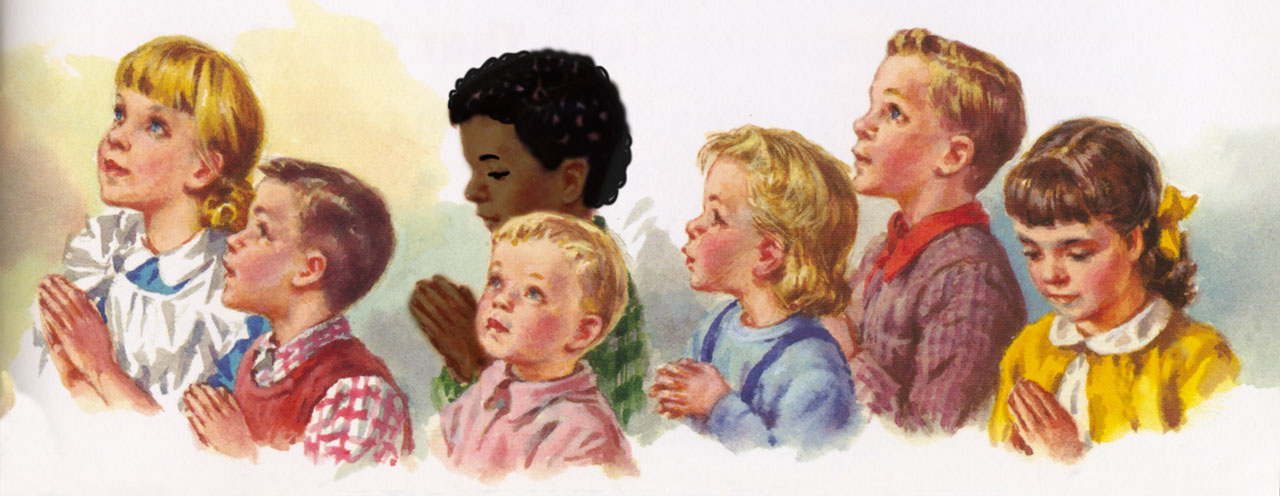
503. — Why is almsgiving a penance?

504. — What does the Commandment to help the Church in its needs oblige us to do?
Click on the dots to match the text to the audio.
Audio of the Lesson
Glossary
Ember Days: Each of the four periods in the Catholic liturgical year that include three days of fasting and abstinence. There are three Ember Days in each season of the year.
Lent: The forty-day period of penance between Ash Wednesday and Easter. The six Sundays during Lent are not counted in the 40 days of penance.
Paschal Time: The 50 days between the feasts of Easter and Pentecost.
Alms: A gift given to the poor out of charity.
Lesson 46: Our Last Ends

505. — What great means does God recommend to avoid sin?
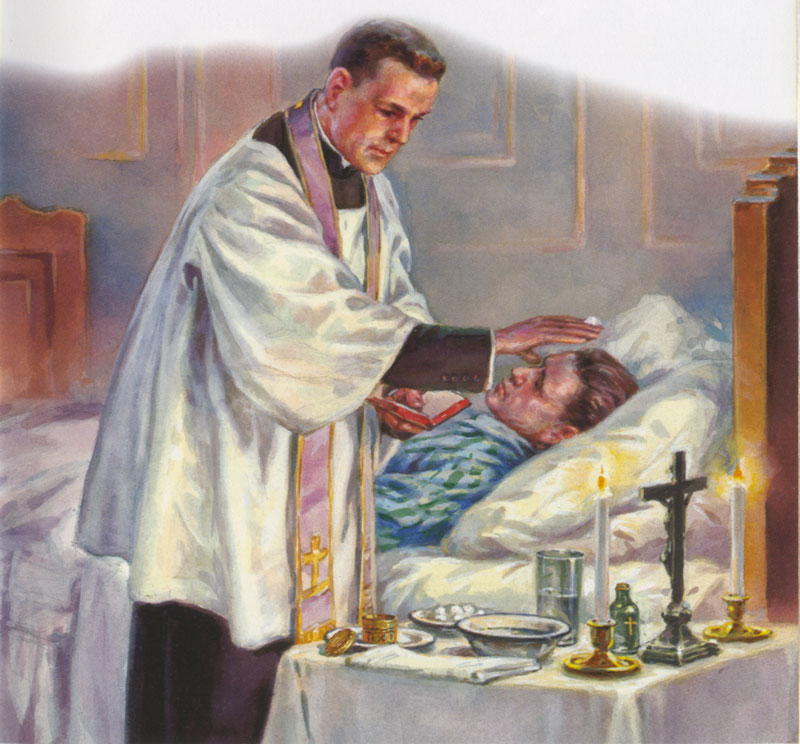
506. — What are our last ends?

507. — What must we recall concerning death?
We must recall that:
1. Death can come at any moment whatsoever, and we must always be ready for it.
2. We die but once, and after death there is no more time to repent and gain merit.

508. — What do we mean by life everlasting?

509. — What will happen to our soul immediately after death?

510. — What do we call the judgment we will undergo immediately after death?
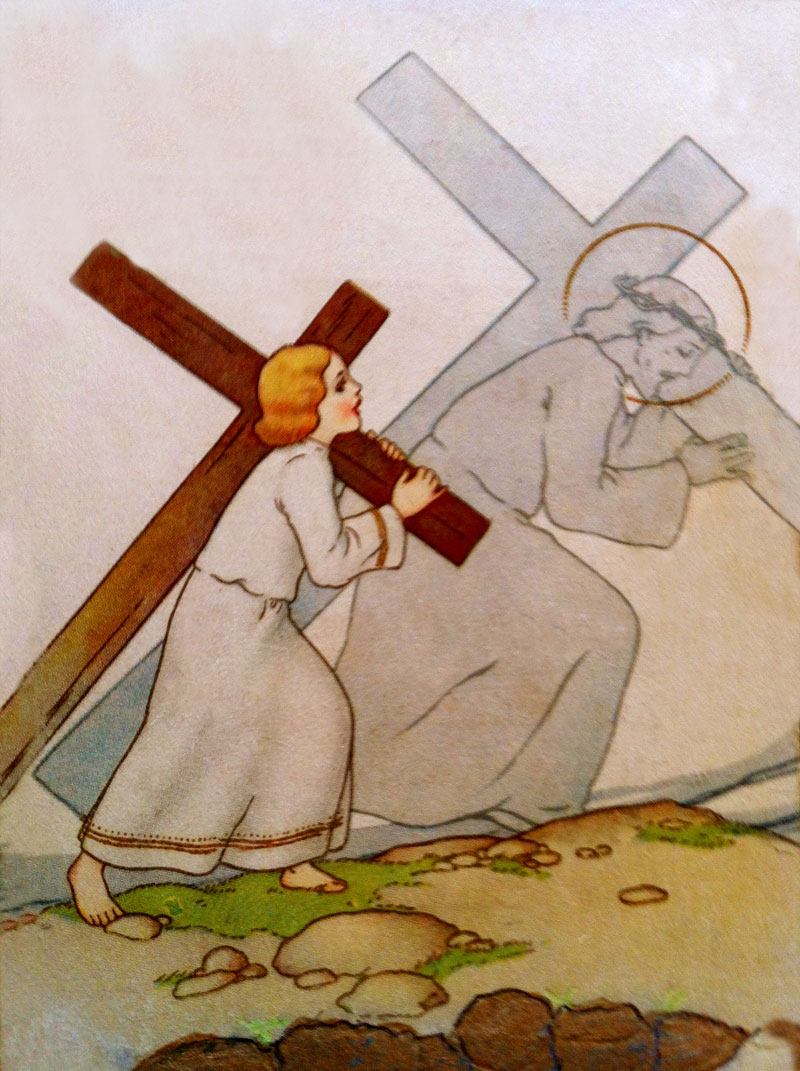
511. — On what will Jesus Christ judge us?

512. — Why does Jesus Christ judge men immediately after their death?

513. — What reward or punishment is reserved for souls after the particular judgment?
Click on the dots to match the text to the audio.
Audio of the Lesson
Glossary
Only one lifetime is given to each human being: it is the time God gives us to know Him, love Him and serve Him. If we are faithful to God, we are victorious over the trial and our reward – the happiness of Heaven – is eternal.
Lesson 47: Heaven, Purgatory and Hell

514. — What is Heaven?

515. — Who will go to Heaven?
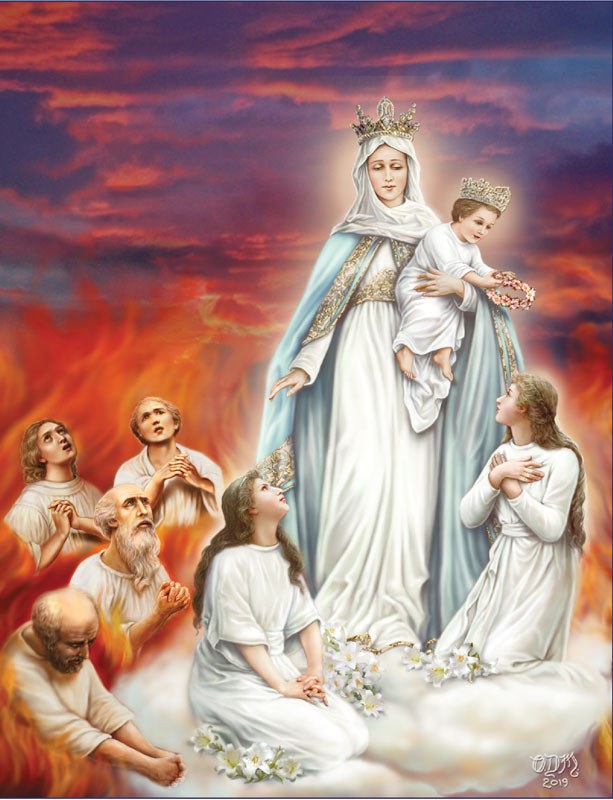
516. — What is Purgatory?

517. — Can the faithful on earth help the souls in Purgatory?

518. — What is Hell?
Click on the dots to match the text to the audio.
Audio of the Lesson
Glossary
The word Purgatory comes from a Latin word that means “to purify”.
Purgatory is an infinite Mercy of God. Since nothing unclean can remain in the presence of God, without this place of ultimate purification, almost all souls would have to go to hell.
A torment is a punishment that causes great pain and is the punishment for crime.
By torment we mean extreme suffering. The torments of hell are the eternal separation from God and the eternal fire.
Mortifications are penances, privations that one voluntarily imposes on oneself or that one endures with patience while offering them to God.
Those who serve God well on earth are called the just.
A place of delight is a place where one enjoys the greatest joys.
The elect are those who deserve Heaven by serving God with all their heart during their life.
To lose our soul is to go to Hell.
Lesson 48: Particular Judgment and General Judgment
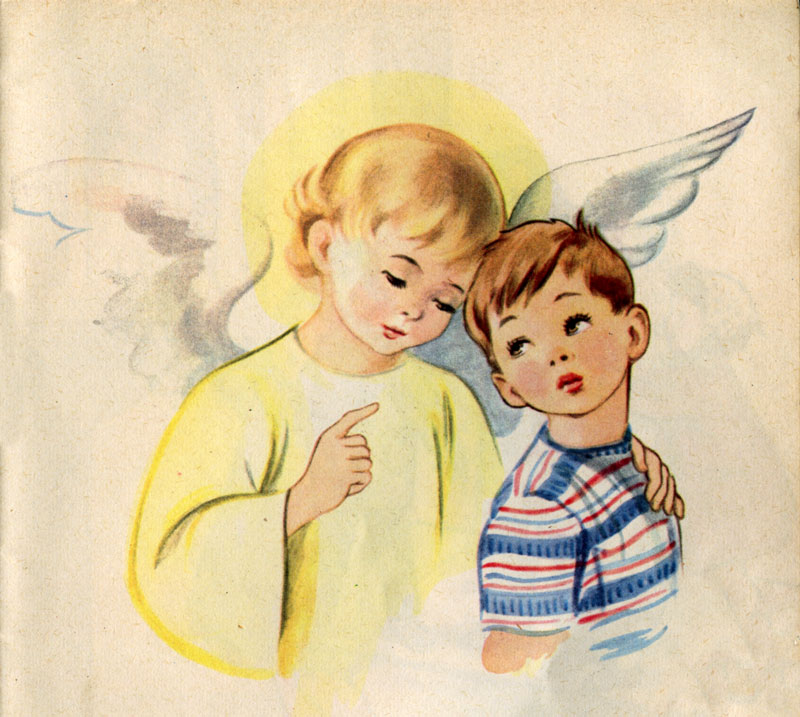
519. — Besides the particular judgment, will there be another judgment?
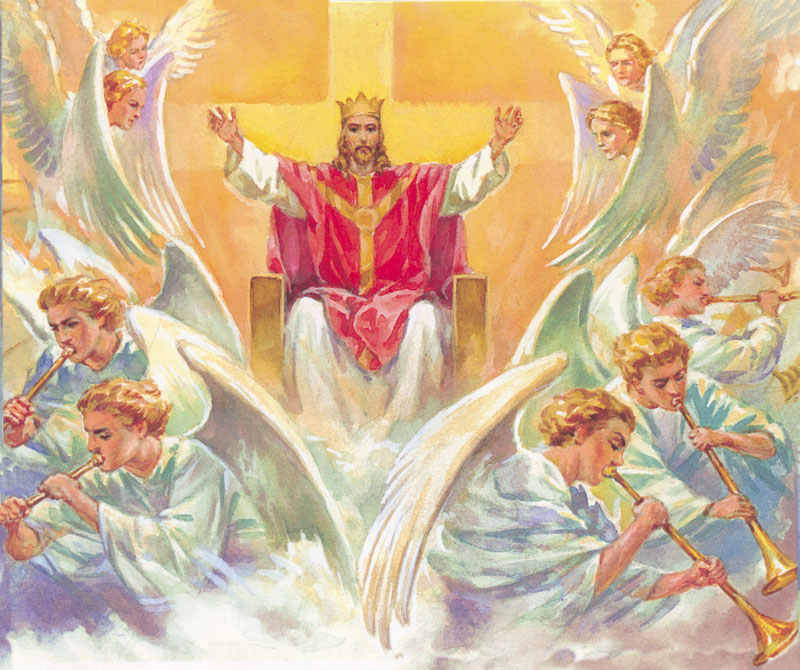
520. — What is the general judgment?
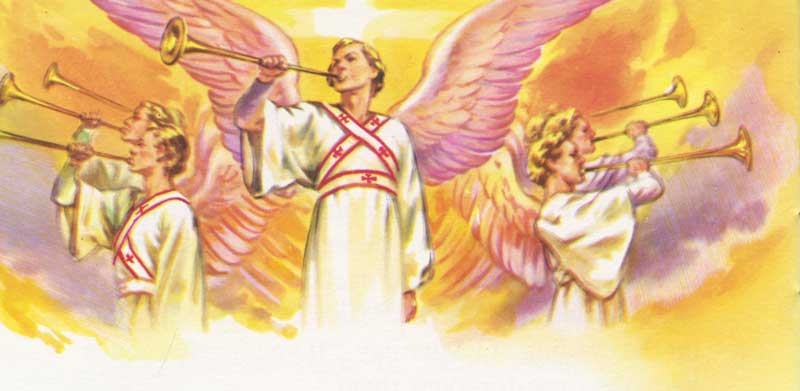
521. — Why must there be a general judgment?

522. — Will the body share in the reward or punishment of the soul?

523. — In what condition will the bodies of the just rise?

524. — Will the bodies of the damned also rise?

525. — What words should we always bear in mind?
Click on the dots to match the text to the audio.
Audio of the Lesson
Glossary
Our soul is immortal, that is, it will never die. The only career for which we must sacrifice everything is that of loving and serving God on earth, in order to be happy with Him during all eternity.
Eternal means: lasting forever, never ending.
Lesson 49: Practice of the Christian Life

526. — What must a Christian do every day of his life?
In order to live a holy life, a Christian must, every day of his life:
1. Upon awakening in the morning, make the sign of the cross and say, My God, I give You my heart;
2. After dressing modestly, kneel down and say the morning prayer;
3. Attend mass, if he can conveniently do so;
4. Go about the business to which his state calls him;
5. Take his meals with sobriety and temperance, being careful to say the Blessing and Grace;
6. Assist the poor, according to his means;
7. At the end of the day, and as much as possible with the family, examine one’s conscience and pray in the evening.

527. — How should a Christian sanctify his actions?

528. — How should one suffer the sorrows and hardships of life?

529. — What position should a Christian take with regard to the slander spread by the media and social networks?
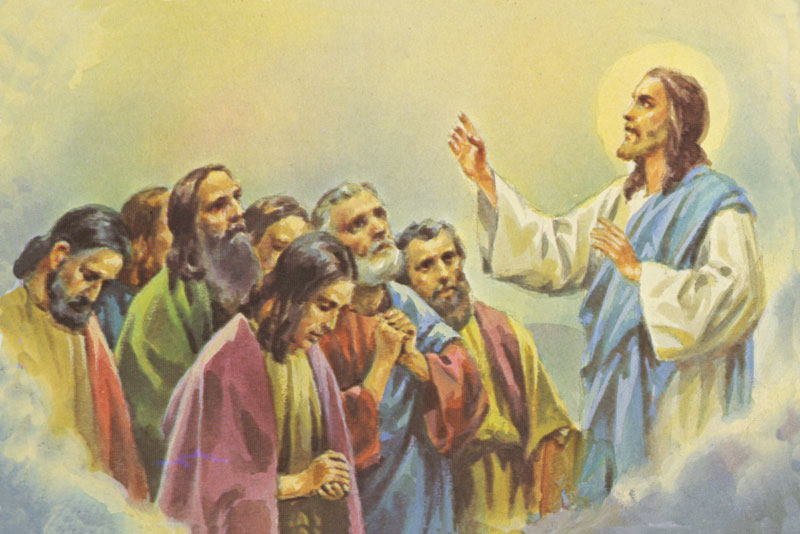
530.— How should we behave in temptations?
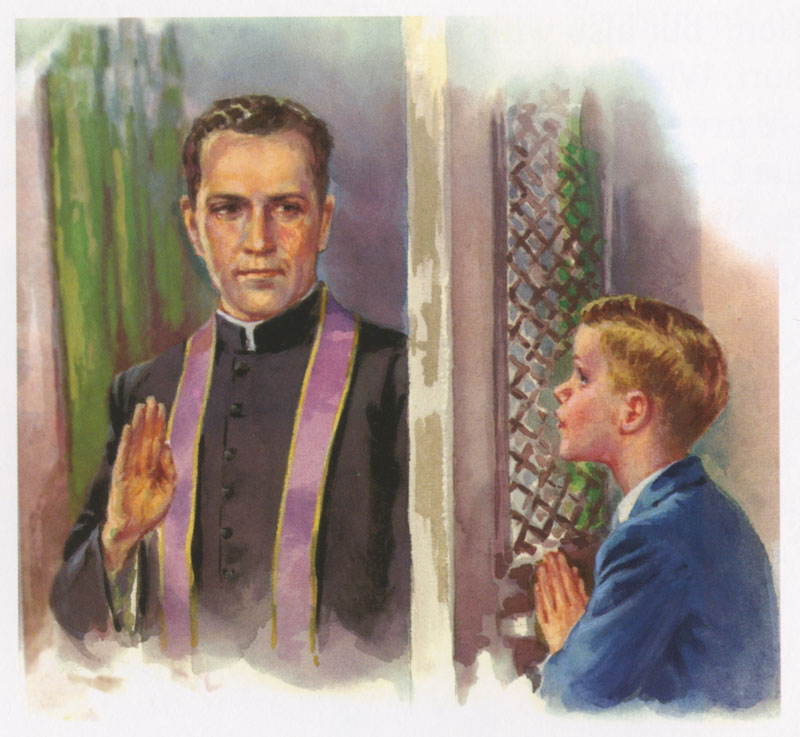
531. — If we believe we have fallen into mortal sin, what should we do?
Click on the dots to match the text to the audio.
Audio of the Lesson
Glossary
Christian means “disciple of Christ”. The Christian must therefore conform his life in such a way as to resemble as perfectly as possible Jesus his Master and Model.
To eat with sobriety and temperance means to avoid all excess in eating and drinking.
To sanctify our actions is to make them holy, that is, pleasing to God and meritorious for Heaven.
Lesson 50: Practice of the Christian Life <em(cont.)

532. — What is to be observed with regard to entertainment?

533. — What should a Christian do on Sundays and feast days?

534. — What is it proper to do every month?

535. — What is advisable to do every year?

536. — How should we conduct ourselves in illness?
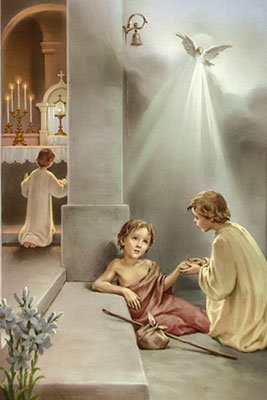
537. — What is to be done by one who sees a relative or friend dangerously ill?
Click on the dots to match the text to the audio.
Audio of the Lesson
Glossary
Necessary entertainments are those needed to rest the mind or the body after work.
Innocent entertainments are those in which one does not offend the good Lord, and which are not occasions of sin.
A spiritual retreat is a time when we withdraw momentarily from our usual duties, from our surroundings to assess our life, to pray, to listen to spiritual instructions, to confess, to receive the guidance of an enlightened guide. It is a rest from all the distractions of the world that renews our soul by a salutary purification and a renewal of energy.
Click here to download the complete Catechism Course.
This course is offered to you free of charge by Editions Magnificat.
You may download and print it for your personal use.
If you wish to make multiple copies, please request permission from:
apostles@magnificat.ca
THANK YOU!
© All rights reserved.
“We seek God in books.
We find Him in prayer.”Saint Padre Pio of Pietrelcina
